https://www.youtube.com/watch?v=1v8eF1iiglc&ab_channel=CTVNews
'Do you have notes?': NDP ethics critic slams lack of transparency from Trudeau government
422 Comments
https://www.youtube.com/watch?v=bc-Vs2--uBw&ab_channel=CBCNews%3ATheNational
Concerns with extremist groups trying to take over protest convoy
https://www.youtube.com/watch?v=5k8IiQqSHJY&ab_channel=CBCNews
CBC News goes inside the Ottawa protest encampment
https://www.youtube.com/watch?v=MhI_0fSsTAE&ab_channel=CBCNews
Police close in on remaining Ottawa protesters | CBC News special
https://www.cbc.ca/news/canada/montreal/quebec-raid-atomwaffen-division-neo-nazi-group-1.6491005
RCMP conducting raids in central Quebec targeting Atomwaffen Division neo-Nazi group
No arrests expected in what RCMP are calling a 'national security operation'
Around 60 RCMP officers are conducting raids southwest of Quebec City, targeting people connected to the neo-Nazi group the Atomwaffen Division.
"It's a far-right affiliated group, which could be described as having neo-Nazi allegiance," RCMP Cpl. Charles Poirier said.
Poirier said two search warrants are being executed in the towns of Saint-Ferdinand and Plessisville in what he called a "national security operation."
Poirier said there was no threat to the general public and no arrests are expected.
He said this is the culmination of an investigation that began in 2020.
Poirier said a command centre has been established beside a church and RCMP officers are searching a house behind the church.
An emergency response team, an armoured vehicle, police dogs and Sûreté du Québec police officers are assisting in the search.
Third raid this year
Atomwaffen Division is a neo-Nazi group founded in the U.S. in 2013. The group claims to be inspired by the serial killer Charles Manson and posits that history will end in a race war.
 Former national security analyst Stephanie Carvin said the Atomwaffen
Division is one of many far-right groups active in Canada. (CBC News)
Former national security analyst Stephanie Carvin said the Atomwaffen
Division is one of many far-right groups active in Canada. (CBC News)
Stephanie Carvin, a former national security analyst and associate professor at Carleton University, noted that this is the third raid by the RCMP targeting the Atomwaffen Division this year.
Last month, RCMP arrested a 19-year-old man from Windsor, Ont., over alleged links to the group.
And in March, RCMP in Ottawa raided the home of Patrick Gordon Macdonald, a key figure in the group who was known by the name "Dark Foreigner."
"It really does suggest that this movement is alive and well in Canada," Carvin said.
She said the group is more commonly known now as the New Socialist Order and that such groups frequently change their names and reorganize but continue to espouse the same far-right views.
"They want the collapse of society because in the end, the goal of these groups is to create a white ethno-state, and they only see that happening through some kind of civil war," Carvin said.
Carvin said she's not sure why the RCMP would execute such warrants without planning to make any arrests.
"It's hard to know exactly what they're looking for. They may just simply be building a case, trying to understand the network," she said.
 RCMP officers take part in a raid in Saint-Ferdinand in connection with
the far-right group Atomwaffen Division. (Submitted by the RCMP)
RCMP officers take part in a raid in Saint-Ferdinand in connection with
the far-right group Atomwaffen Division. (Submitted by the RCMP)
"But in order to get a warrant, you have to show that there are reasonable grounds to believe that individuals are engaged in kind of violent extremism activities," Carvin said.
"So it's not just a hunch. It's not just a suspicion," she said.
"You really want to do it in order to prosecute individuals who may actually be involved in violent extremist activity," she said.
"No arrests have been made today and no criminal charges are anticipated today," RCMP Cpl. Tasha Adams told Radio-Canada.
"Search warrants are being conducted to gather more evidence with regards to this investigation," she said.
"It's possible that in the future we'll be conducting further police operations with regards to the evidence that will be collected here today," Adams said.
Bernie Farber, chair of the Canadian Anti-Hate Network, told CBC in an interview he's glad the RCMP is taking the group seriously.
"I have to say that I've been impressed with the amount of attention that they have paid to not only Atomwaffen but to other groups of its kind — hardcore right, neo-Nazi white supremacist groups," Farber said.
"They're taking every precaution and doing things the right way. I think this is what Canadians should be applauding," he said.
With files from Jennifer Yoon and Radio-Canada
https://www.youtube.com/watch?v=cKtUQK11Eyc&ab_channel=CTVNews
Convoy figure Tyson 'Freedom George' Billings cheered after release from jail
151 Comments
https://www.cbc.ca/news/canada/ottawa/ottawa-freedom-george-tyson-billings-guilty-plea-1.6488450
Tyson Billings a.k.a. Freedom George released from jail after guilty plea
Prominent Freedom Convoy figure pleaded guilty to 1 of several charges; others withdrawn
Tyson George Billings, a prominent figure in this winter's Freedom Convoy in Ottawa who is also known as Freedom George, pleaded guilty in court Wednesday to one of several charges against him and has been released from jail.
Billings was sentenced to six months of probation and is expected to return to his home in High Prairie, Alta., court heard.
He pleaded guilty to one count of counselling to commit mischief, and the other charges he faced were withdrawn.
He is the convoy's first major figure to plead guilty.
Greeted by dozens of supporters as he exited the courthouse, Billings agreed with the court's assessment he was taking part in a protest and got carried away.
"I got caught up in the moment, sure, who wouldn't? We're all freedom fighters, everybody got caught up in the moment," he said.
"I accept responsibility for the mischief charge. ... I don't regret anything."
By taking responsibility for his role in the protests, Billings mitigated the pursuit of a long sentence, according to the Crown. The joint submission from the Crown and Billings' lawyer asked for him to be released with time served.
Billings told reporters outside the courhouse he was treated well in jail, and his fellow inmates treated him like a celebrity. He also said he will leave Ottawa "as fast as possible" but will continue to fight for freedom, potentially as part of future protests.
Tyson
Billings, a prominent figure in this winter's Freedom Convoy who is
also known as Freedom George, leaves the Ottawa Courthouse after
pleading guilty to one of the charges against him and being released
June 15, 2022. (Patrick Doyle/The Canadian Press)
Billings' Feb. 19 arrest was broadcast to thousands of viewers who regularly tuned into his social media feeds during the protest that saw Ottawa's downtown occupied for weeks.
His booming chants of "Freedom" and "Let's go" have become synonymous with the ongoing "Freedom Movement."
During the protests, Billings would often appear alongside Pat King, another prominent figure and one of the convoy leaders.
The two were co-accused of two counts each of intimidation and obstructing police, and one count each of mischief, counselling to commit mischief, counselling to obstruct police, counselling intimidation, disobeying a court order and counselling to disobey a court order.
Tyson George Billings faced several charges from the Freedom Convoy protest-turned-occupation this past winter. (Facebook)
Supporters with close contact to Billings expected his release following his 10 a.m. court appearance.
On Sunday, Selena Paley, one of the Freedom Central Canada organizers, said she and two other members of Freedom Central Canada were travelling to Ottawa to pick Billings up and support him after his release.
She asked supporters to come to the Ottawa Courthouse in support of Billings — who she describes as being "integral" to trucker safety during the Ottawa protests and "a man who put a lot on the line during the Freedom Convoy."
Continued support for Freedom Central Canada
Throughout his detention, Billings, usually through supporters, has continued to solicit funds through his social media accounts and website, selling Freedom Convoy-related merchandise.
In April, he spoke directly to supporters from the Quinte Detention Centre in Napanee, asking them to buy merchandise from him and support Freedom Central Canada, which for many has become a favoured source of information and updates on Freedom-related movements since police cleared protesters from Ottawa streets.
"I'm doing OK, I am missing my family a lot, though," he said in a phone call broadcast live to supporters.
He told supporters how to financially support him, saying his mom had paid a $30,000 retainer for his legal counsel. He said his mom is also covering his bills including child support payments and truck loans.
Supporters
circulated a poster online about the expected release of Billings,
better known as Freedom George for his prominence during the Freedom
Convoy in Ottawa. (Facebook)
Billings said he was giving information directly to Freedom Central Canada to share with supporters.
In recent weeks, Freedom Central Canada has featured well-known anti-vaxxer Chris Sky and other prominent figures in the Freedom Movement, including one person who's campaigning across Canada to Ottawa in support of a future protest.
The two people behind that group — Selena Paley and Cody Kuntz — travelled to Ottawa to welcome Billings after this release.
"We are happy with the result and the co-operation from the Crown prosecutor," said Paley.
"The one guilty plea of counselling to commit mischief I think is reasonable in this case. Whether George is guilty or not is not up for us to decide."
https://www.cbc.ca/news/canada/ottawa/king-billings-convoy-jail-ottawa-1.6483455
In jail for more than 100 days, Pat King 'beat down,' says supporter
Pat King, a Freedom Convoy leader, remains in jail 113 days after being arrested
Months after the Freedom Convoy was cleared out from Ottawa's streets, some of its leaders remain behind bars with no end in sight, and one expert says they're likely serving more jail time awaiting trial than they will if convicted.
Pat King, one of the leaders of the convoy, remains in jail 113 days after being arrested for his role in the protest that occupied downtown Ottawa streets for more than a month.
King is co-accused with Tyson George Billings, who was arrested on similar charges on the weekend police cleared protesters.
Often seen at King's side, Billings is known among supporters as "Freedom George" and gained notoriety during February's protests for his booming chants of "Let's go!" and "Freedom!"
Billings has been behind bars for 112 days.
The two continue to be denied bail.
Police never disclosed a full list of who was arrested and charged following the Freedom Convoy, but at least a handful of lesser-known people involved are still in jail.
According to a legal expert, King and Billings have likely already served more jail time awaiting trial than they will if convicted and sentenced.
"We are already reaching a period of prior detention that overpasses the possible punishment," said Joao Velloso, a law professor at the University of Ottawa.
Others arrested during the protest, such as Tamara Lich and Chris Barber, are awaiting trial on bail. However, they are active on social media promoting adjacent movements, including election campaigns and future protests.
King 'pretty beat down' in jail
A pastor who tries visiting regularly with King in jail at the Ottawa-Carleton Detention Centre questions the length of time he has been incarcerated for.
"He's pretty beat down," says Melissa McKee, a pastor at Ottawa's Capital City Bikers' Church, which offered sanctuary space during its regular hours to protesters during the Freedom Convoy.
King continues to be frustrated by the justice system — he went through a series of lawyers before hiring his current representative, Natasha Calvinho, but continues to face charges for mischief, counselling to commit mischief, counselling to commit the offence of disobeying a court order, and counselling to obstruct police.
In the midst of an April bail review hearing, King was charged with obstructing justice and perjury.
All evidence presented at the bail review remains subject to a publication ban, which is often requested and granted to prevent potential jurors from being prejudiced ahead of trial.
Supporters question justice of detainment
Supporters regularly seek out the latest info on King, and many continue to view him as a motivating figure in the Freedom Convoy, and the ongoing movement it inspired.
McKee says regardless of what people may think of him, being in jail for this long is not just.
"I'm not measuring Pat against Tamara or Chris Barber, I'm measuring what he did, what did he do? He did Facebook live videos rallying people, he knew this was a possibility that he could be arrested, but [113] days?"
McKee says she regularly ministers to people in need of what she calls "heart care" or "spiritual care."
"I'm literally doing the same thing with Pat King I would do for anybody who knocked on our door," she said, adding God has put a call on her life to help broken people.
Earlier this month, after King had spent more than 100 days in jail, a group advocating on his behalf launched a letter-writing campaign asking people to send notes of support to him at the jail.
"After over 100 days in prison being mentally worn down, Pat King is being pressured to agree to a gag order to silence his voice upon release. Send letters of support to Pat King at the address below, encouraging him to Hold The Line!" wrote David Paisley, who runs the popular social media channel "Live from the Shed."
Billings's supporters continue to solicit funds for him through online fundraising — at the end of May, a post on his Facebook page, supposedly being run by his daughter, said Billings needs repairs done to his "Freedom truck" and suggests his release is coming soon.
"Any small amount helps. Thank you all for everything you have done and continue to do for Freedom George, he thanks everyone for the cards and the support you all have given him. He loves you all so much," read part of that message.
Legal counsel for Billings did not respond to repeated requests for comment.
Most adults in jail awaiting trial, sentencing
Law expert Velloso notes about 80 per cent of the prison population is in a similar situation to King: waiting for trial on a case that will be decided within a month, or even a week, because people have already served any potential penalty that would eventually be given to them.
According to Statistics Canada, since 2004, the average number of adults awaiting trial or sentencing in provincial services is higher than the average number of adults sentenced to custody — in recent years, it's about 70 per cent higher.
In Ontario and most provinces, more than half of the people in jail are waiting to be tried or sentenced.
"For King... he's going to be in preventative detention for a while, and if you look into the overall trends of criminal punishment in Canada, he probably already served his time," Velloso said.
Trudeau isolating after testing positive for COVID-19 again
PM had recently travelled to the U.S. for the Summit of the Americas
The prime minister, who was travelling recently in the U.S. for the Summit of the Americas, tweeted Monday morning that he feels "okay" and will be isolating according to public health guidelines.
The fully vaccinated Trudeau previously tested positive in January of this year, as did two of his children.
Trudeau met with various world leaders while in Los Angeles for the summit, including U.S. President Joe Biden.
White House spokesperson Kevin Munoz told Bloomberg that Biden isn't considered a close contact of the prime minister.
https://www.youtube.com/watch?v=nIYiselTUUE&ab_channel=BloombergQuicktake%3ANow
Trudeau Tests Positive for Covid as Truckers Protest Vaccine Mandates
 Miramichi-Grand
Lake Conservative MP Jake Stewart, far right, and Ottawa-area
Conservative MP Pierre Poilievre, centre, posed for photos with truckers
on Jan. 29. (Jake Stewart/Twitter)
Miramichi-Grand
Lake Conservative MP Jake Stewart, far right, and Ottawa-area
Conservative MP Pierre Poilievre, centre, posed for photos with truckers
on Jan. 29. (Jake Stewart/Twitter)
Pierre Poilievre says he supports peaceful protesters taking part in trucker convoy
NDP's Jagmeet Singh denounces trucker convoy, disagrees with brother-in-law's donation to the cause
Singh's brother-in-law donated $13,000 to group organizing trucker convoy
https://www.cbc.ca/news/canada/ottawa/emergencies-act-inquiry-justin-trudeau-1.6430084
Trudeau calls public inquiry into use of Emergencies Act during convoy protests
Official inquiry into the federal government's use of the Emergencies Act headed by Ontario judge
Prime Minister Justin Trudeau called Monday for the establishment of an inquiry into the use of the Emergencies Act.
In a news release, Trudeau said an independent public inquiry called the Public Order Emergency Commission would be created to examine the circumstances leading to the declaration being issued.
Trudeau invoked the act for the first time in Canada's history during the Freedom Convoy, giving the federal government temporary powers to deal with the blockades and protests against pandemic restrictions.
"This includes the evolution of the convoy, the impact of funding and disinformation, the economic impact, and efforts of police and other responders prior to and after the declaration," the release said.
Paul Rouleau has been named as the commissioner heading the inquiry. He was first appointed as an Ontario Superior Court justice in 2002 and then joined the Ontario Court of Appeal in 2005.
WATCH | Pubic safety minister discusses how much information his government will release
Rouleau, who has also served in the territories during his career as a litigator, will be tasked with submitting the final report, in both official languages, to both Houses of Parliament before Feb. 20, 2023.
"In the coming days and weeks, I will be working to establish the Public Order Emergency Commission and will be offering more information on the functioning of the Commission in the near future," Rouleau said in a statement. "I am committed to ensuring that the process is as open and transparent as possible, recognizing the tight timelines for reporting imposed by the Emergencies Act."
Trudeau said in a statement Rouleau would look into the circumstances that led to the Emergencies Act being invoked "and make recommendations to prevent these events from happening again."
Critics say inquiry won't scrutinize the government
Those critical of the government's decision to invoke the act described the inquiry as overly focused on the actions of protesters and the role played by fundraising and disinformation in the event.
The Conservatives argue the Liberals are using that approach to deflect attention from the government's own actions and decisions.
"The Liberal government is doing everything in their power to ensure this inquiry is unsubstantial and fails to hold them accountable," said a joint statement from Conservative MPs Raquel Dancho, Dane Lloyd and Gérard Deltell.
The Canadian Civil Liberties Association — which is suing the federal government over its decision to invoke the act — said the inquiry does not appear to be focused on government accountability.
"The broader context is important, but the government's attempts to divert attention from their own actions is concerning," said the CCLA on Twitter.
 Mendicino
said the Emergencies Act was also needed to address blockades at border
crossings, such as this protest at the Ambassador Bridge linking
Ontario to Michigan. (Geoff Robins/AFP/Getty Images)
Mendicino
said the Emergencies Act was also needed to address blockades at border
crossings, such as this protest at the Ambassador Bridge linking
Ontario to Michigan. (Geoff Robins/AFP/Getty Images)
Mendicino told reporters that Rouleau "will have broad access, including to classified documents." But there do appear to be limits on the information that can be disclosed through the inquiry.
The order in council that sets out rules for the inquiry calls on the commissioner to avoid disclosing information that could be "injurious" to Canada's international relations, defence and security.
During an interview on CBC's Power & Politics, Mendicino also did not commit to waiving cabinet confidences — the discussions and deliberations between cabinet ministers that are protected by law.
Trudeau cited 'serious challenges' when invoking Emergencies Act
The Emergencies Act was revoked Feb. 23 after police successfully cleared Ottawa streets and ended adjacent protests. By law, an inquiry into the use of the act must be called within 60 days of the declaration being revoked.
Trudeau cited "serious challenges to law enforcement's ability to effectively enforce the law" when he announced its use.
"This is about keeping Canadians safe, protecting people's jobs and restoring confidence in our institutions," he said at the time.
The unprecedented use of the Emergencies Act, according to Trudeau, gave police tools to restore order in places where public assemblies were considered illegal and dangerous activities, such as blockades.
Deputy Prime Minister Chrystia Freeland said at the time Canadian financial institutions could temporarily cease providing financial services in instances where there was suspicion an account was being used to further illegal blockades and occupations.
Freeland later confirmed that Ottawa directed financial institutions to freeze the accounts of people connected to the protest.
When first announced, premiers in Alberta, Saskatchewan, Manitoba and Quebec expressed concern over invoking the act.
Joint committee reviewing Emergencies Act
In March, a special joint committee of seven MPs and four senators started reviewing the use of the Emergencies Act.
That committee will meet again Tuesday. It has not yet released any findings.
The Emergencies Act sets out the terms for cabinet to set up the inquiry announced Monday. It says an inquiry must be held "into the circumstances that led to the declaration being issued and the measures taken for dealing with the emergency."
Inquiries typically involve witnesses offering testimony, the review of records and the use of experts to assist parliamentarians.
https://www.cbc.ca/news/politics/emergencies-act-trudeau-vaccine-protest-convoy-ottawa-1.6373636
The committee reviewing Trudeau's use of the Emergencies Act faces a daunting task
Its NDP co-chair, Matthew Green, says committee members have a 'responsibility' to work together
But it's also too early to abandon all hope that parliamentarians will be able to meet the occasion with the seriousness and transparency that the moment demands.
"I think given what's been endured across the country over the last two months, and what's at stake in order for us to move forward, I can't think of a more important moment through this entire pandemic to have all parties from the House and the Senate set aside hyper-partisanship and really allow for the seriousness of our work," said NDP Matthew Green, who will co-chair the committee.
"We have to provide Canadians with the answers they deserve around the invocation of the Emergencies Act in order to move beyond this."
The House of Commons formally agreed to the structure of the special joint committee of Parliament by a vote of 214 to 115. A recorded vote was necessary because the Liberals and Conservatives couldn't agree on how the committee should be constituted.
The government and Official Opposition disagreed over whether a Conservative should co-chair the committee. Government House leader Mark Holland publicly stated that a Conservative should not be involved in the leadership of the committee since several Conservatives expressed support for protesters.
When negotiations failed to produce an agreement, the government put its proposal for the committee's makeup to the House. It passed with the support of NDP, Bloc Quebecois and Green MPs. Conservative House leader John Brassard responded with a statement that accused the government of trying to duck accountability.
The committee will be unlike any other current parliamentary committee.
A 'solemn responsibility'
It will be made up of seven MPs and four senators, with representation from each of Parliament's recognized parties and groups.
The House contingent will include three Liberals, two Conservatives, one New Democrat and one member of the Bloc Quebecois. The Senate's four seats will be filled by one senator each from the Conservative Senate caucus, the Independent Senators Group, the Progressive Senate Group and Canadian Senators Group.
A
person holds a 'Make Ottawa Boring Again' sign as people take part in a
counter-protest blocking a small convoy of vehicles from getting to
downtown Ottawa on Feb. 13, 2022. (Chris Helgren/Reuters)
While standard House committees are chaired by either a member of the governing party or a member of the Official Opposition, the Emergencies Act committee will be co-chaired by the NDP's Green, Bloc MP Rheal Fortin and Independent Sen. Gwen Boniface.
That arrangement could prevent the committee's business from being overwhelmed by partisan acrimony. The tenor of the proceedings might also benefit from the presence of three independent senators — Boniface, Peter Harder and Vern White — who will come to the table without partisan interests.
"By way of analogy, I think we have a solemn responsibility to ensure that this doesn't become a political version of the occupation and the social deadlock that we watched occur on the Hill and across border blockades across the country," Green said.
 Before his appointment to the Senate, Vern White led the Ottawa Police Service. (The Canadian Press)
Before his appointment to the Senate, Vern White led the Ottawa Police Service. (The Canadian Press)
The committee won't lack relevant expertise. Six members of the committee are former lawyers – Liberals Rachel Bendayan, Yasir Naqvi and Arif Virani, Conservative MP Larry Brock, Conservative Sen. Claude Carignan and Fortin.
Sen. Boniface is a former commissioner of the Ontario Provincial Police, Sen. White is a former chief of police in Ottawa and Conservative MP Glen Motz is a former police officer.
Green is a former city councillor in Hamilton, Ontario. Naqvi was the attorney general for Ontario and is now MP for Ottawa-Centre, the riding that includes the area around Parliament Hill that was blockaded by protesters. Peter Harder was a senior public servant and former deputy minister in the Department of Public Safety.
The committee has many important questions to answer.
Did the protest meet the 'emergency' standard?
Officially, the Emergencies Act assumes that the committee will review "the exercise of powers and the performance of duties and functions pursuant to a declaration of emergency." In practice, that likely means addressing two fundamental questions. Was the threshold met for declaring a public emergency? And were the powers invoked necessary to deal with the situation?
But the lines of inquiry could extend beyond that — up to and including how protesters were allowed to occupy downtown Ottawa in the first place. Green said he's interested in looking at the actions of police (or the lack of them), the role played by "dark money" raised through fundraising websites and the influence of social media.
"I think the chairs are going to have to do everything within our power to make sure that this is a procedurally fair process and that Canadians get out of this what they deserve, which ultimately is truth and accountability and transparency," Green said.
"And I can't underscore how important I think it is that we have a duty to work to restore trust. Because it doesn't matter where people fall on the issue. The trust has been broken."
https://www.cbc.ca/news/politics/marco-mendicino-emergencies-act-convoy-1.6488424
Questions about who wanted Emergencies Act deployed prompt Conservative calls for Mendicino to resign
Opposition accuses public safety minister of 'misleading' Canadians on invoking emergency powers
A Parliamentary committee is examining the government's decision to make use of the Emergencies Act, which it did to end an anti-vaccine mandate protest that occupied Ottawa in January and February of this year.
When Mendicino appeared before the committee, he said the government acted on "the advice of non-partisan professional law enforcement."
But RCMP Commissioner Brenda Lucki and Ottawa Police Chief Steve Bell have testified that they did not ask the government to invoke the act.
WATCH | Conservatives accuse public safety minister of misleading Canadians on Emergencies Act
In a statement, interim Conservative leader Candice Bergen said Mendicino should resign for "lying to and misleading Canadians about the Emergencies Act."
"The minister has repeatedly claimed that the government only invoked the Emergencies Act 'at the recommendation of police' but testimony from RCMP Commissioner Brenda Lucki and the chief of the Ottawa Police Service prove that this was not the case," she added.
In other testimony before the committee, Rob Stewart, the deputy minister of public safety, said there was a "misunderstanding of the minister's words."
A spokesperson for Mendicino has not yet responded to a request for comment from CBC News.
Resignation question leads to fiery QP
Bergen kicked off question period in the House of Commons Tuesday by asking Prime Minister Justin Trudeau whether he would ask Mendicino to step down.
Trudeau didn't answer the question directly and instead defended his government's use of the act.
"When illegal blockades paralyzed our economy, hurt workers and communities, police, municipal and provincial leadership told us more tools were needed to bring them to an end," Trudeau said.
"We listened, we determined that the Emergencies Act had the tools necessary to end this, and it worked."
Bergen kept pressing for an answer.
"[Mendicino] is a lawyer and a former federal prosecutor," she told the Commons. "He knows full well how to choose his words carefully. He knows full well how to be precise in his language.
"Yet he said over and over again that law enforcement requested the Emergencies Act. Those were his words. We now know his words were not true. How can the prime minister have any faith in this minister? Will [Trudeau] ask this minister to resign?"
Trudeau again didn't answer, choosing instead to go on the offensive.
"What is crystal clear is how much Conservatives are hoping Canadians forget that they stood with the illegal blockaders," he said.
Mendicino defended his testimony in question period and gave no indication he'd step down.
"I got into politics to make sure that we could protect Canadians, and on this side of the House, we know what is necessary when it comes to the protection of the health and safety of Canadians," he said.
"That's why we invoked the Emergencies Act. We obviously consulted police, we sought their advice. You heard the commissioner say before the committee we got that advice and we used it."
Lucki has testified at committee that the RCMP used new powers under the Emergencies Act to prevent people from joining the Ottawa protest.
"We used it as a big deterrent for people to come into the area. So, yes, in fact, we did use the measures that were put in the Emergencies Act, along with other authorities that we had," she told a February public safety and national security committee meeting.
 RCMP
Commissioner Brenda Lucki speaks during a news conference in Ottawa on
Oct. 21, 2020. Lucki has said new police powers under the Emergencies
Act worked as a deterrent against more protestors joining the Ottawa
occupation, but she denies the RCMP asked the government to invoke the
act. (Adrian Wyld/The Canadian Press)
RCMP
Commissioner Brenda Lucki speaks during a news conference in Ottawa on
Oct. 21, 2020. Lucki has said new police powers under the Emergencies
Act worked as a deterrent against more protestors joining the Ottawa
occupation, but she denies the RCMP asked the government to invoke the
act. (Adrian Wyld/The Canadian Press)
Pressed to react to Mendicino's statements on CBC's Power & Politics, Ottawa Centre Liberal MP Yasir Naqvi, who is also the parliamentary secretary to the minister of emergency preparedness, said the government made its decision based on advice from law enforcement.
"When it comes to what laws should be used, that's the government's decision. But based on that consultation, based on the advice the government was getting from law enforcement … [the] Emergencies Act was invoked so they can be given those extra tools to put an end to the illegal occupation and blockades," Naqvi told host Vassy Kapelos.
Dane Lloyd, the Conservative emergency preparedness critic, said Mendicino's statements suggest he wanted to attribute the decision to use the act to law enforcement.
"It's very misleading because the minister said that it was on the recommendation of police that they invoked the Emergencies Act, which was clearly designed to deflect responsibility from the government," Lloyd said.
NDP public safety critic Alistair MacGregor said Mendicino can resolve the issue with more transparency about what happened.
"The minister has a duty to the committee to be as transparent as possible so that that committee has full access to the process whereby cabinet made a decision to invoke the [Emergencies Act]," MacGregor said.
"To put this issue to rest, the minister needs to be fully transparent with the committee."
Ottawa's interim police chief didn't ask for Emergencies Act during Freedom Convoy
Minister pointed last month to 'non-partisan professional law enforcement' advice
Ottawa's interim police chief says he did not ask the federal government to invoke the Emergencies Act in February during the Freedom Convoy.
The Liberals have said law enforcement asked for additional powers that could only be granted by declaring a national emergency, which they did on Feb. 14.
Ottawa interim chief Steve Bell spoke to a parliamentary committee Tuesday about issues with jurisdiction in downtown Ottawa, along with representatives from the Ontario Provincial Police, RCMP and Gatineau police.
The committee on procedure and House affairs is examining whether federal security jurisdiction should expand to include Wellington and Sparks streets, the two east-west streets just south of Parliament Hill.
- Local MPs call for post-protest rethink of Wellington Street
- Expanding parliamentary precinct would improve safety, police tell MPs
But MPs on the committee wanted clarity about who asked the government to invoke the Emergencies Act for the first time since it became law in 1988.
"We were involved in conversations with our partners and with the political ministries," Bell said. "We didn't make a direct request for the Emergencies Act."
The act granted police and financial institutions extraordinary powers to freeze bank accounts of organizers, create zones where people were not allowed to protest, ban people from supporting the protest and compel tow truck companies to help them clear out vehicles.
Similar to RCMP comments
RCMP Commissioner Brenda Lucki said something similar to a separate committee investigating the use of the Emergencies Act last week: that she was involved in conversations about triggering the act a week before it was invoked, but that she never asked for it.
She said emergency powers were useful in dislodging the protesters who were entrenched in Ottawa's streets for weeks and there were times the RCMP would have used those powers sooner if the act had been invoked earlier.
Public Safety Minister Marco Mendicino told that same committee back in April that the Liberals "invoked the act because it was the advice of non-partisan professional law enforcement that the existing authorities were ineffective at the time to restore public safety."
Mendicino also said the emergency declaration helped "smooth over differences in jurisdiction" among police forces and levels of government.
Emergencies Act allowed police to end Ottawa protest convoy: minister
Police have faced a great deal of criticism from politicians and the public for what many said was a lack of enforcement of existing laws and a slow response.
Ottawa police were the lead agency in charge of the response to the convoy, which started in the last weekend of January and ended about three weeks later.
Ottawa's police chief Peter Sloly resigned on Feb. 16 amid public outrage. Later that same day, the chair of the city's police oversight board was also voted out.
Many police agencies were involved in clearing the occupation of streets in the downtown core, with hundreds of demonstrators blocking streets with vehicles to protest COVID-19 restrictions, vaccine mandates and the Liberal government.
RCMP commissioner denies claim Mounties used 'kid gloves' with Freedom Convoy protesters
NDP MP Matthew Green says he saw a 'juxtaposition of policing'
RCMP Commissioner Brenda Lucki says she sees no double standard in the way Mounties policed the Freedom Convoy protests and blockades earlier this year compared to the tactics they have used with Indigenous protesters.
During a heated exchange in a committee meeting Tuesday night, NDP MP Matthew Green asked about the scenes that played out during border blockades over COVID-19 health mandates and compared them to blockades during protests against a pipeline drill site on Wet'suwet'en territory in northern British Columbia.
Green referred to the cases as a "juxtaposition of policing — what I'll call a failure of policing."
The RCMP has come under fire after a U.K. newspaper reported that police were prepared to use snipers on Wet'suwet'en Nation protesters and argued for "lethal overwatch" in 2019.
WATCH | Top Mountie pressed to explain RCMP's handling of protesters
Top Mountie pressed to explain RCMP's handling of protesters
Last year, video footage provided to the media showed RCMP tactical officers breaking down a door with an axe and chainsaw to arrest pipeline opponents at Coyote Camp during another protest on the territory. The RCMP is also investigating reports of violence at a pipeline construction site on Coastal GasLink property earlier this year.
Green contrasted those incidents with reports that Alberta RCMP officers shook hands with and hugged some of the protesters who had halted traffic at the United States border crossing near Coutts, Alta., to demonstrate against pandemic health mandates.
RCMP said they seized more than a dozen long guns, hand guns, ammunition and body armour from that site.
Lucki says police are 'part of the community'
"How is it that you reconcile the double standard in policing?" Green asked Lucki Tuesday night as a special joint committee continued its study of the invocation of the Emergencies Act in February to disperse Freedom Convoy protesters.
"And what would you say to Canadians who have questions about the conduct of RCMP officers giving handshakes and high-fives and hugs shortly after these weapon stashes were found in what was admittedly a high-risk investigation and arrest?"
"What I can say was there were many legal protesters at the Coutts protest," Lucki responded.
 NDP MP for Hamilton Centre Matthew Green says he saw a 'juxtaposition of
policing — what I'll call a failure of policing.' (Adrian Wyld/The
Canadian Press)
NDP MP for Hamilton Centre Matthew Green says he saw a 'juxtaposition of
policing — what I'll call a failure of policing.' (Adrian Wyld/The
Canadian Press)
"And our members, who police there, are part of the community, they shop in those stores. They're neighbours to those people."
Green interrupted, asking if the difference in approach was due to the fact that the protesters at Coutts looked like the police officers themselves.
"No," said Lucki. "They live in those communities."
"Can we acknowledge at least a double standard there?" asked Green.
"No, not at all, no," the head Mountie responded.
Green ended his allotted time by asking if Lucki would "at least admit that there were kid gloves for the protesters in Coutts directly after the discovery of the weapons cache."
"No," said Lucki. She said that in Coutts, it was protesters and supporters who approached police at the scene.
Allegations of police failure
MPs and senators tried to press Lucki during the three-hour committee hearing over how the RCMP and Ottawa Police responded to the hundreds of demonstrators who blocked streets in Ottawa with big rigs and other trucks to protest COVID-19 restrictions.
Beyond Coutts, protesters also blocked border crossings at Windsor, Ont., and Emerson, Man., and the pacific highway crossing in B.C.
Prime Minister Justin Trudeau argued it was necessary to invoke the Emergencies Act to address "serious challenges to law enforcement's ability to effectively enforce the law."
The Emergencies Act authorized a ban on travel to protest zones, allowed banks to freeze the accounts of some of those involved in the protests and allowed officials to commandeer tow trucks. It also enabled the RCMP to enforce municipal bylaws and provincial offences as required.
Lucki said she didn't think the convoy protests suggested a failure in policing, despite several senators and MPs on the committee suggesting the opposite.
Sen. Peter Harder said he thought the actions of police prior to the invocation of the act "demonstrated a series of police failures."
"Not willful failures," he said. "But the inability of police to contain and act appropriately in reducing the occupation here in Ottawa."
Conservatives say threshold wasn't met
Lucki said the temporary powers bestowed by the Emergencies Act served as a deterrent in Ottawa, but they weren't used to clear protest blockades at border crossings.
"In RCMP jurisdiction, we successfully used a measured approach and existing legislation to resolve border blockades," she told the committee.
Lucki also testified that she was involved in conversations about triggering the act a week before it was invoked on Feb. 14, but that she never requested it.
On Wednesday, the Conservatives said that shows Liberal government did not have the evidence to meet the threshold for invoking the Emergencies Act.
"From the beginning, Conservatives have said that the threshold to invoke the unprecedented use of the Emergencies Act was never met and we have repeatedly called on the Liberal government to justify its actions — but they have failed to do so," reads the statement.
Ottawa announces suspension of vaccine mandates for domestic travel, federal employees
Mandates have been in effect since Oct. 30, 2021
Federal employees and transportation workers in federally regulated sectors will no longer have to be fully vaccinated as a condition of their work. Those on unpaid administrative leave because of their vaccination status will be invited to return to work.
Starting June 20, vaccines will no longer be required for travellers in Canada. Canadian citizens entering the country from abroad will still be required to meet entry requirements and masks will remain mandatory for those boarding planes or trains in Canada. Visitors to Canada will have to be fully vaccinated to enter the country, or meet the requirements of an exemption.
WATCH | Ottawa deliberately took its time to lift vaccine mandates for domestic travel, says Intergovernmental Affairs Minister
Minister of Intergovernmental Affairs Dominic LeBlanc told reporters that while some mandates are being suspended, the federal government will bring them back if the COVID-19 situation changes for the worse.
"Today's announcement is possible because Canadians have stepped up to protect each other," LeBlanc said. "We are now able to adjust our policy because we have followed consistently the best advice from public health authorities."
LeBlanc said that the federal government does not regret its cautious approach to lifting mandates, adding that Ottawa's policies saved lives.
Vaccine mandates for cruise ship passengers and crews will remain in place, as will adherence to strict public health measures.
The vaccine mandates for travel have been in effect since Oct. 30, 2021. As the mandates were phased in, travellers had a one-month grace period during which they could instead provide proof of a negative COVID-19 test.
Unvaccinated
Canadians have always been allowed to return to Canada. But the federal
government's website says unvaccinated Canadians have to meet all
"pre-entry, arrival, Day-8 testing, ArriveCAN and quarantine
requirements"
or face a fine up to $5,000 or criminal prosecution.
Airport congestion
The government has been under pressure from opposition parties and industry organizations to relax some public health measures in response to delays and long lineups at airports.
Transport Minister Omar Alghabra said the changes to vaccine mandates are not a response to congestion at Canada's airports but are motivated by health advice and the effect mandates and vaccination policies have had on previous COVID-19 waves.
"International airports are facing similar challenges," he said. "Heathrow's airport, Amsterdam's airport, Dublin's airports, U.S. airports — this is a phenomenon that we are seeing because of a surge in demand and the labour is trying to catch up to that surge.
"We have a responsibility to act. We are working with airlines, we are working with airports and we are doing everything we can to ease those bottlenecks."
Suspending random testing
Last week, the federal government announced that it was suspending random COVID-19 testing at airports.
At that time, Alghabra said Ottawa was taking other measures to address airport congestion, such as hiring more security screening personnel and adding more customs kiosks at Toronto's Pearson International Airport.
Government officials — including Alghabra, Health Minister Jean-Yves Duclos and Chief Public Health Officer Theresa Tam — have pointed to mandates as an effective way of getting more Canadians vaccinated.
But experts have questioned the effectiveness of vaccine mandates for travel since the emergence of the more infectious Omicron variant. Tam has said that effective protection against the variant requires a third booster dose.
WATCH: 'Right time' to end vaccine travel mandates, says specialist
So far, the government's definition of "fully vaccinated" remains two doses of an approved COVID-19 vaccine or one dose of the Johnson & Johnson vaccine.
Infectious diseases specialist Dr. Isaac Bogoch said that while two doses of a COVID-19 vaccine protects against severe illness or death, it's time to end the travel mandates.
"The purpose was to really prevent transmission of COVID-19 in transportation," he said. "Two doses doesn't really provide much in the way of protection against getting the infection and onward transmission of the infection for those who are infected."
Unions welcome policy change
Representatives of the Public Service Alliance of Canada (PSAC) and the Professional Institute of the Public Service of Canada (PIPSC) — which together represent more than 250,000 federal public servants — welcomed the move but said they were frustrated by having to learn of the change through the media.
"Unfortunately, the federal government did not consult with PSAC before making its decision to lift its vaccination policy. Unions should always be consulted on policies that have a major impact on the terms and conditions of employment of our members to protect their health and safety and their rights in the workplace," PSAC said in a media statement.
PIPSC issued a statement saying it welcomed the announcement but — like PSAC — it's concerned about union members who remain on leave without pay and is awaiting details on how they'll be phased back into the workplace.
Trudeau tests positive for COVID-19, condemns 'hateful' rhetoric
Prime minister has been isolating since one of his children tested positive last week
Prime Minister Justin Trudeau condemned the anti-vaccine-mandate protests that have gripped the nation's capital for the last four days, saying he won't meet with people who promote hate and espouse anti-science views.
Speaking to reporters Monday from a quarantine site where he's staying while the protests continue in the parliamentary precinct, Trudeau said he watched in horror this weekend as some of the protesters carried flags with Nazi insignia and climbed the National War Memorial.
He said the protesters who have congregated in Ottawa — many of them along Wellington Street, which runs just in front of the Prime Minister's Office — are not representative of most Canadians.
Trudeau repeated his pro-vaccine message, saying the best way to fight the pandemic is to push ahead with vaccination and the mandate rule that requires all cross-border travellers — including essential workers like truckers — to get their shots.
The Conservatives, meanwhile, said Trudeau was maligning a largely peaceful group of people who are fed up with COVID-19-related restrictions and just want to be heard by those in power.
WATCH: Trudeau speaks out on anti-vaccine mandate convoy in Ottawa
Trudeau also announced Monday he has tested positive for COVID-19. He said he doesn't have any symptoms and he's feeling "fine."
Trudeau has been in isolation since one of his children tested positive for the virus late last week. A second Trudeau child has now come down with a case of COVID-19. Trudeau said he'll stay in quarantine and work remotely while he recovers.
"It's a big challenge that my family and I are facing but there's nothing unusual or special about it. It's a challenge too many Canadians and people around the world know all too well," Trudeau told a press conference.
Trudeau got his first two COVID-19 shots last year and received a booster dose at an Ottawa pharmacy earlier this month.
PM, family moved from Rideau Cottage
Trudeau urged all Canadians to get vaccinated and boosted as cases of the Omicron variant hit high levels in many parts of the country. The prime minister's wife, Sophie Grégoire Trudeau, contracted COVID-19 in the early days of the pandemic in March 2020.
The prime minister and his family were moved over the weekend from their residence at Rideau Cottage after a convoy of anti-vaccine-mandate protesters converged on Parliament Hill, which is just four kilometres from the family home.
The sound of loud honking and cheering filled the city over the weekend as thousands of protesters voiced their opposition to various COVID-19-related restrictions. Sporadic honking resumed in the early hours of Monday and vehicles continue to block streets in the downtown core.
 A
person leads a group in the saying of the Rosary during a rally against
COVID-19 restrictions on Parliament Hill in Ottawa on Jan. 30, which
began as a cross-country convoy protesting a federal vaccine mandate for
truckers. (Justin Tang/The Canadian Press)
A
person leads a group in the saying of the Rosary during a rally against
COVID-19 restrictions on Parliament Hill in Ottawa on Jan. 30, which
began as a cross-country convoy protesting a federal vaccine mandate for
truckers. (Justin Tang/The Canadian Press)
The protest was focused initially on the federal government's vaccine mandate for cross-border truckers. It has since expanded into a movement against broader public health measures to limit the spread of COVID-19.
Swastikas spotted
Ottawa police described the protests as mainly peaceful but said Sunday they're investigating a number of incidents, citing reports of threatening behaviour, public mischief and dangerous operation of a vehicle.
Police said several incidents on Saturday that were roundly condemned — protesters jumping on the Tomb of the Unknown Soldier and adorning a statue of Terry Fox with anti-vaccine material and an upside-down Canadian flag — are under review.
Trudeau said Monday Canadians are "shocked" and "disgusted" with the actions of some of the protesters.
Trucks are seen parked on Metcalfe Street in Ottawa on Jan. 30. (Justin Tang/The Canadian Press)
Pointing to the presence of swastikas and Confederate flags in the protest, the desecration of the Tomb of the Unknown Soldier and acts of hooliganism at a local homeless shelter, Trudeau said his government "won't cave to those who engage in vandalism or dishonour the memory of our veterans."
While the crowds began to dissipate Sunday night, some — including the organizers behind a GoFundMe page that has amassed more than $9 million to support the convoy — said the goal is to create a logistical nightmare for the government and force it to repeal vaccine mandates.
Trudeau won't meet with protesters
One organizing group, Canada Unity, is demanding that government leaders either repeal the mandates or "RESIGN their lawful positions of authority immediately."
Asked if he would meet with some of the protesters now camped out in the parliamentary precinct — demonstrators who have vowed not to leave until all pandemic-related restrictions come to an end — Trudeau said he had no interest in going "anywhere near protests that have expressed hateful rhetoric and violence towards their fellow citizens."
"So to those responsible for this behaviour — it needs to stop," Trudeau said. "Canadians at home are watching in disgust and disbelief at this behaviour, wondering how this could have happened in our nation's capital."
Trudeau said that while Canadians have the right to protest, no one has a right "to abuse, intimidate and harass ... fellow citizens." He promised to press ahead with pandemic measures despite "intimidation" from some members of the convoy.
WATCH | Convoy of protesters represents a range of grievances and demands:
Frustration unifies protesters on Parliament Hill
Trudeau also accused some Conservative politicians of encouraging a movement composed of hateful elements with questionable motives.
He said some politicians have been "exploiting people's fears" in a way that could lead to "hard consequences" for the country.
While vocally rejecting bigotry and hate, Conservative Leader Erin O'Toole has said Canadians frustrated with two years of COVID-19 restrictions should be heard by elected officials.
O'Toole met with some of the truckers in the convoy away from Parliament Hill on Friday. Over the weekend, O'Toole condemned the actions directed at the Tomb of the Unknown Soldier and the Terry Fox statue.
WATCH: Conservative Leader Erin O'Toole questions PM Trudeau on protest convoy
O'Toole questions Trudeau on why he won't meet with trucker convoy
A number of Conservative MPs have said they stand with truckers and other groups opposed to the federal vaccine mandates.
Trudeau said Monday that Canadians have not seen "responsible" leadership from O'Toole or People's Party Leader Maxime Bernier — who has made opposition to COVID-19 restrictions the cornerstone of his political movement since the pandemic began nearly two years ago.
"We have seen over the past many, many months Conservative politicians sharing disinformation about vaccines, encouraging conspiracy theories online," he said. "And I think Erin O'Toole is going to need to reflect very carefully on how he's walking a path that supports these people who do not represent truckers, let alone the vast majority of Canadians."
Speaking in question period, O'Toole said it's wrong for the prime minister to focus on "on the voices of a few" bad actors in the convoy while dismissing the concerns of "millions of Canadians who are worried."
'When is life getting back to normal?'
O'Toole said people's lives have been upended by years of restrictions, children are grappling with mental health issues, businesses are failing and the nation's social fabric has been "stretched."
"When is life getting back to normal?" O'Toole asked.
In response, Trudeau said the best way through this pandemic is more vaccinations. "Canadians have never been so united in stepping up," he said.
Conservative Deputy Leader Candice Bergen accused Trudeau of unfairly dismissing "passionate, patriotic and peaceful Canadians" who gathered on Parliament Hill to fight back against restrictions that, in some cases, have cost them their livelihoods.
Bergen said that Trudeau has "wore blackface more times then he can remember" and shouldn't brand the anti-mandate movement as racist.
Conservative MP Leslyn Lewis, a politician who has opposed COVID-19 vaccines for children, said the Liberal government is to blame for some of the deep divisions that have emerged during this health crisis.
Lewis said people are rallying in Ottawa and across the country to put an end to "discriminatory mandates" that have been put in place by Trudeau and the premiers. She said the prime minister and other politicians met with Black Lives Matters protesters but are now hiding "from 100,000 truckers and citizens who are rallying for democracy."
Ottawa police have said about 10,000 were on hand for Saturday's protest.
"Our house in Canada is not just divided, it is becoming fractured," Lewis said in a speech in the Commons. "Wedge political issues have resulted in pitting Canadians against each other."
Conservative MP Leslyn Lewis said the federal Liberal government is to
blame for pandemic-related divisions in the county. (Adrian
Wyld/Canadian Press)
Speaking to reporters after the weekend's events, NDP Leader Jagmeet Singh dismissed the convoy as a "divisive group of people on the right."
"I don't think these people speak for Canadians," Singh said. "Their actions are unacceptable. I want the convoy to leave so life can return to normal because it's been very hard on the people of Ottawa."
Singh said the Ottawa Police Service has been quick to disband previous protests organized by racialized Canadians but has stood by as trucks clog the city's streets and protesters harass locals. He said police have shown "restraint" and are using "de-escalation" tactics in this instance but not in other cases.
"Police should not be allowing a situation where people don't feel safe," he said.
The police have urged people to avoid travelling to the city's downtown core while law enforcement deals with the ongoing disruptions.
"For those who choose to remain, we'll make that assessment once we understand who is still here, what purposes and what public safety risks are associated to that," said Chief Peter Sloly.
With files from the CBC's Catharine Tunney
Cleanup crews replace protesters in downtown Ottawa as heavy police presence remains
Police working to ensure 'nobody returns to occupy our streets again,' says Interim Ottawa police Chief
- Confederation Line LRT service resuming Monday morning.
- Local police say businesses that closed during protests should now feel safe to reopen.
- Police working to ensure protesters don't return to Ottawa streets, interim police chief Steve Bell says.
- Hundreds of charges filed against protesters, with more than 200 personal and corporate accounts frozen.
- SIU investigating two cases where police tried to clear protesters from Ottawa streets.
- Police continue to warn people to avoid the downtown core.
- Only Parliamentary staffers allowed north of Sparks Street.
- Cleanup crews are removing garbage, signs left behind after protest.
- Mayor Jim Watson suggests towed vehicles should be sold to help cover city's cost.
The snowy streets of downtown Ottawa near Parliament Hill remain off-limits for the near future as Ottawa police say they're working to ensure no further protesters return.
Police officers and City of Ottawa cleanup crews are the few people who remain in front of Parliament Hill on Wellington Street, where thousands of demonstrators rallying against COVID-19 mandates occupied the streets for more than three weeks, terrorizing some residents.
"We are deeply committed to the community healing that we know now needs to take place," interim Ottawa police Chief Steve Bell said at a news conference Sunday afternoon.
Over the next several days, Bell said police will figure out how to maintain a presence in the downtown core "to make sure that nobody returns to occupy our streets again."
On Monday morning, police sent out social media reports advising people only parliamentary employees would be permitted north of Sparks Street between Elgin Street and Bay Street. Wellington Street, once the focal point of the protest, is closed to all traffic.
There are approximately 100 police checkpoints surrounding the secured downtown area. Police say they are asking people for their reason for travelling within the area.
Ottawa interim police Chief Steve Bell speaks to reporters during a
press conference in Ottawa on Sunday. (Cole Burston/The Canadian Press)
Part of that concern stems from reports some members of the convoy have regrouped outside the city. More than 50 vehicles were seen this weekend at Herb's Truck Stop in Vankleek Hill, Ont., less than 100 kilometres from downtown Ottawa.
Bell did not say when downtown roads would reopen to residents or whether vehicle traffic would be barred from Wellington Street indefinitely.
By Sunday morning, officers had fenced off the area immediately surrounding the Parliamentary Precinct, where protesters had been entrenched since late January, until a series of police advances throughout the day Saturday pushed the crowd first west, then south, away from Parliament Hill.
Late last week, they set up a secure area stretching from Bronson Avenue to the Rideau Canal, and from the Queensway to Parliament Hill.
Somerset Coun. Catherine McKenney, who represents part of Ottawa's downtown, told CBC News that it was a "sigh of relief" to see police making progress, saying residents are "cautiously optimistic."
"Now we're just ensuring the residential areas in and around where this occurred continue to be free of sympathizers to this illegal occupation coming back to the area," McKenney said.
Police continue to tell people to avoid the downtown core and warn residents who have vehicles parked between Metcalfe and Bay streets and Albert and Gloucester streets to move their vehicles or risk being towed.
Only parliamentary staffers are currently allowed north of Sparks Street.
"It's bizarre how quiet it is," said Tyler Mercier, who was out walking with his partner Maria Barrett-Morris and their children Sunday for the first time since the occupation took hold.
"It's been frightening," said Barrett-Morris. "We haven't allowed them to be outdoors [or to walk] home from school alone. We've had to get them again."
 Around 50 vehicles could be seen at Herb's Truck Stop in Vankleek Hill,
Ont., east of Ottawa, on Sunday. (Denis Babin/Radio-Canada)
Around 50 vehicles could be seen at Herb's Truck Stop in Vankleek Hill,
Ont., east of Ottawa, on Sunday. (Denis Babin/Radio-Canada)
Slow return to normalcy
Police have opened up Rideau Street at Sussex Drive, but it remains closed westbound at Dalhousie Street. Mackenzie Avenue southbound, Sussex Drive northbound and Colonel By Drive are open to pedestrian and vehicle traffic, police said.
Businesses that closed in that area should now feel safe to reopen, Ottawa police said.
The force also asked people Sunday evening to to avoid a small demonstration happening near the Sir John A. Macdonald Parkway and Booth Street, one where children were in attendance.
Fifteen bus routes serving downtown are now free of charge and will stay that way until 30 days after Ottawa's state of emergency is lifted, OC Transpo announced Sunday.
For now, however, bus routes serving downtown remain on detour. The free rides also apply to Para Transpo trips to and from Rideau-Vanier and Somerset wards.
Starting Monday morning, LRT service will resume along the entire length of the Confederation Line, according to a memo from transit services general manager Renée Amilcar.
The City of Ottawa is warning that any communications that appear to come from the city involving financial compensation over the convoy protests are not authentic.
Dozens of commercial, passenger vehicles seized, towed
By Sunday afternoon, police announced they had made 191 arrests and laid 389 charges against 103 people.
The charges include obstructing police, disobeying a court order, mischief, assault, possessing a weapon and assaulting a police officer.
Bell said in one instance, a protester tried to take an officer's Taser.
Eighty-nine people arrested had been released on bail conditions that include being prohibited from going within a certain area of the protests. Others were released without any conditions.
Police also towed 79 vehicles related to the protest. The vehicles include heavy trucks, pickup trucks and cars.
Twelve Ontario licence plates and 24 out-of-province plates have also been seized, said Chris Harkins, deputy commissioner for the Ontario Provincial Police.
Harkins said Sunday that the Ministry of Transportation had also taken action against 36 commercial vehicles. Thirteen of those were registered in Ontario, he said, with the others registered outside the province.
 Police
enforce an injunction against protesters, some who have been camped in
their trucks near Parliament Hill for weeks, on Saturday. (Evan
Mitsui/CBC)
Police
enforce an injunction against protesters, some who have been camped in
their trucks near Parliament Hill for weeks, on Saturday. (Evan
Mitsui/CBC)
Emergencies Act spurs tense debate
MPs debated in the House of Commons all weekend, ahead of a vote on whether to ratify use of the Emergencies Act. Debate continued Monday morning, ahead of an evening vote.
Part of the act allows Canadian financial institutions to temporarily cease providing financial services if it suspects an account is being used to further the illegal blockades and occupations.
The RCMP says to date, 206 personal and corporate bank accounts have been frozen.
"We're hearing very clearly from the law enforcement community that the tools they had available to them were insufficient to respond," Emergency Preparedness Minister Bill Blair told CBC News earlier in the day. "We provided additional supports, and it's having the positive effect of bringing this matter to a peaceful end."
But there are questions about whether the measures taken by police have been truly peaceful, with officers in riot gear using batons and anti-riot weapons to disperse the crowds — prompting Ontario's police watchdog to get involved.
On Saturday, officers, including members of the Ontario Provincial Police, Sûreté du Quebec, Toronto's public order unit and Durham Region in Ontario, began using pepper spray at about noon in response to what the Ottawa Police Service called "assaultive behaviour" from protesters. By about 7:30 p.m., Ottawa police said officers were using "mid-range impact weapons" in response to assaults from protesters.
On Sunday, the Special Investigations Unit said it was investigating two incidents that occurred on Friday and Saturday, when officers were clearing the streets.
One involved a 49-year-old woman who reported a serious injury after an interaction with a Toronto police officer on horseback, and the other stems from officers discharging Anti-Riot Weapon Enfields at people near Sparks Street and Bank Street.
Police said vehicles will be impounded for seven days, but Ottawa Mayor Jim Watson said Saturday he would like the impounded vehicles to be sold to help the city recover the costs of the occupation.
Watson told CBC News that the city has the power to do so from the Emergencies Act, which was invoked by the federal government last week.
 Few
people can be seen on Wellington Street in front of Parliament Hill on
Sunday, a significant change from previous weekends, as police continue
to clear the downtown core of protesters and vehicles. (Ellen Mauro/CBC)
Few
people can be seen on Wellington Street in front of Parliament Hill on
Sunday, a significant change from previous weekends, as police continue
to clear the downtown core of protesters and vehicles. (Ellen Mauro/CBC)
Police action downtown convinced at least some protesters at the other major protest site — the semi-permanent camp at the Coventry Road parking lot — to pack up and leave.
Tents and other structures at the site were dismantled over the course of several hours on Saturday afternoon, despite no visible police presence in the area.
Approximately two dozen vehicles remained in the parking lot on Sunday morning. By Sunday afternoon, police were delivering notices containing a list of potential offences that could lead to trespassing charges to those who remained.
Officers started to move in just before 5 p.m.
Top convoy organizers charged
On Sunday, police announced various charges against Tyson George Billings, 44, from High Prairie, Alta. He's facing one count each of mischief, counselling to commit mischief, counselling to disobey a court order, obstructing police and counselling to obstruct police.
Three top convoy organizers are all facing similar charges, including western separatist Tamara Lich, Saskatchewan trucker Chris Barber and Alberta resident Pat King. Former RCMP officer Daniel Bulford was also arrested late last week.
The organizers are some of those named in a proposed class-action lawsuit seeking $306 million that has been expanded to include a wider geographic area, as well as workers and businesses.
Ottawa resident says locals were 'suffering' under convoy occupation
With files from Bobby Hristova, Denis Babin, and Rachelle Elsiufi
Party lines drawn ahead of key Emergencies Act vote on Monday
Conservatives argue protest did not rise to threshold for emergency powers
Canada's political parties stood firm in their positions during two days of weekend debates on the use of the Emergencies Act, ahead of a key vote on Monday on whether to ratify the extraordinary powers.
MPs, who sparred in the House of Commons hour after hour, were scheduled to sit from 7 a.m. ET to midnight on both Saturday and Sunday.
The at-times tense and personal debate pitted the Liberal government against the Conservatives and Bloc Québécois, a combination Liberal MP Kevin Lamoureux referred to as an "unholy alliance." The New Democrats have said they will support the government's use of the act but have urged the Liberals to tread carefully, while reserving the right to pull support at any time.
Conservative MP Pierre Poilievre, who has announced he is seeking the leadership of his party, accused Prime Minister Justin Trudeau of engineering the crisis for political gain.
"They have attempted to amplify and take advantage of every pain, every fear, every tragedy that has struck throughout this pandemic in order to divide one person against another and replace the people's freedom with the government's power," he said Saturday.
Poilievre said the Emergencies Act was the "latest and greatest example of attacks on our freedom."
Emergency Preparedness Minister Bill Blair said Sunday that the "vigorous" debates over the Emergencies Act are a sign of a healthy democracy, casting the discussion in a positive light a day after a major police action cleared protesters away from Parliament Hill on Saturday.
"The fact that there has been a vigorous debate taking place in Parliament, that will come to a vote in our democratically elected House of Commons tomorrow ... to me is an affirmation that our democracy is strong," he said in an interview on Rosemary Barton Live.
Protests not an emergency: Conservatives
The Conservatives argue that the protests do not rise to the level of an emergency and do not warrant the use of extraordinary powers — claiming the government's actions are "sinister" and politically motivated.
"There is no emergency, there is no threat to our democracy, and it's a shame the government has not pulled this bill," said Warren Steinley, a Conservative MP from Saskatchewan. Steinley was among several Conservative MPs who voiced support and visited with protesters earlier in the month. The party has since called for the end of the demonstrations.
 Police
enforce an injunction against protesters, some who have been camped in
their trucks near Parliament Hill for weeks, on Saturday. (Evan
Mitsui/CBC)
Police
enforce an injunction against protesters, some who have been camped in
their trucks near Parliament Hill for weeks, on Saturday. (Evan
Mitsui/CBC)
Other Conservatives characterized the protests as a matter more appropriately dealt with by Ottawa police, not an emergency response.
"There's no al-Qaeda, there's no Taliban, there's no North Korean special forces looking to take over the government. Mr. Speaker, this is a matter for local law enforcement officials, and it is wrong for this government to make it out to be anything more than that," said Conservative MP Michael Kram. His characterization of the protests was criticized by Liberal MPs and Green MP Elizabeth May.
Yasir Naqvi, the Liberal MP for Ottawa Centre, made an impassioned speech on Sunday outlining the harms of the protest on the city's downtown.
"I cannot overstate the profound impact this occupation has had on my community," he said, adding it will take time to heal.
Liberals argue measures are restrained, limited
The governing Liberals have argued that the Emergencies Act was necessary to put an end to the protests in Ottawa and others across the country, pointing to such measures as cutting off financial supports and compelling the service of tow truck drivers.
The measures are automatically time-limited, expiring after 30 days, and Parliament has the power to revoke the emergency declaration either in initial votes this week or at any point during the month-long window.
Blair told CBC chief political correspondent Rosemary Barton that the government was committed to maintaining the emergency only as long as needed to resolve the situation in Ottawa.
"We have said and made a commitment to Canadians that we brought these measures reluctantly because they were necessary, but they would only be in place and only where they are required for as long as is necessary," he said.
Emergencies Act measures will 'only be in place as long as they are needed,' minister says
That question is growing in importance as police have succeeded in dislodging protesters from their main encampment near Parliament Hill, establishing a secure perimeter with fencing and towing the vehicles that have occupied much of the city's downtown core for more than three weeks.
In defending their decision, Liberals have repeatedly pointed to comments made by interim Ottawa police Chief Steve Bell on Friday, in which he noted the Emergencies Act had allowed police to set up barriers and secure an area in the city's downtown.
Mixed support from premiers
The government's use of the Emergencies Act received an uneasy response from premiers throughout, with some like Ontario Premier Doug Ford speaking out in support, while others were opposed.
In a separate interview airing Sunday, B.C. Premier John Horgan said while many premiers agreed the situation was serious, they were concerned with federal overreach.
"I think the premiers agreed that the events in Ottawa were just not tenable and something had to be done. But at the same time, we all expressed our concerns about the intrusion into provincial jurisdiction. We all expressed a concern that it be locally focused, geographically focused," he told Barton.
'Something had to be done,' B.C. premier says on invoking federal Emergencies Act
Premier Jason Kenney in neighbouring Alberta took a much harder line, saying on Saturday his government would challenge the use of the act and potentially join as an intervener in a separate case being launched by the Canadian Civil Liberties Association.
"That kind of extraordinary power I don't think is justified," Kenney told Barton in an interview that took place Friday, ahead of his announcement.
"I think they could have dealt with the situation in Ottawa using the same sort of laws they were using in Windsor and at Coutts," he said, referring to blockades of border crossings in Windsor, Ont., and Coutts, Alta.
With files from Rosemary Barton and Tyler Buist
MPs push ahead with Emergencies Act debate as police and protesters face off outside
House of Commons was placed under a 'hold and secure' position earlier Saturday
The federal government's unprecedented decision to invoke the Emergencies Act is dominating downtown Ottawa once again on Saturday — with MPs in the House of Commons debating its merits while police outside use measures afforded by the act to move in against the convoy's last remaining protesters.
Portions of the debate inside Parliament took place with the precinct under a "hold and secure" position, as police and protesters engaged in a tense standoff just metres from the door where MPs enter the House of Commons.
The Parliamentary Protective Service said it was not a lockdown, but the building's perimeter doors were locked and people inside Parliament were urged not to leave.
MPs continued their debate without interruption throughout Saturday, despite the volatile scene taking place outside.
Police successfully cleared Wellington Street, which is directly in front of Parliament Hill, by mid-afternoon.
The House of Commons and the Senate are in the process of debating the Liberal government's controversial move to invoke the Emergencies Act on Feb. 14.
The act went into effect immediately after it was introduced. However, any government using the law must table its emergency declaration at Parliament within seven sitting days of its introduction.
The debate in Parliament will give MPs and senators an opportunity to make amendments to the emergency measures or even to vote down the state of emergency. A vote on the act is scheduled for Monday at 8 p.m. in the House of Commons.
Police credited with how protesters handled
Public Safety Minister Marco Mendicino credited police for conducting the operation against protesters without "significant casualties or violence," which allowed Parliament to resume.
"It is important that parliamentarians have an opportunity to debate the Emergencies Act," he said Saturday morning. "This is the first time it has been invoked. We do need to be transparent with Canadians."
Temporary powers afforded by the act include the ability to freeze the bank accounts and credit cards of people connected to unlawful protests.
 A
police officer wearing tactical equipment faces protesters outside
Parliament Hill on Saturday, as police attempt to clear the weeks-long
protest in the nation's capital. (Michael Charles Cole/CBC)
A
police officer wearing tactical equipment faces protesters outside
Parliament Hill on Saturday, as police attempt to clear the weeks-long
protest in the nation's capital. (Michael Charles Cole/CBC)
Mendicino said on Saturday that 76 accounts representing $3.2 million have been frozen since the act was invoked.
Ottawa interim police Chief Steve Bell credited the Emergencies Act on Friday after officers began a large-scale operation to end the protest. The Emergencies Act has allowed police to erect barricades and operate controlled entry points surrounding the protest zone. The act has also allowed police officers from outside Ontario to join the operation without the need to be formally deputized by Ottawa police.
"What I really like about this piece of legislation ... is that the Charter of Rights applies to it at all times," Liberal MP Greg Fergus said during the debate. "I have every confidence that it is targeted, it is appropriate and especially that it is time-limited."
However, there remains significant opposition to the Emergencies Act.
Critics say protests don't qualify as national emergency
Inside the House of Commons, Conservative and Bloc Québécois MPs continue to admonish the government for its decision to invoke the act, which they have described as a "power grab" and an unnecessary overreach of government powers.
"The answer to lawlessness cannot be more lawlessness," Conservative MP Adam Chambers said. "The government is asking us to suspend certain laws to deal with those breaking others. We are being asked to undermine democratic principles to address some who wish to see democracy itself undermined."
Alberta Premier Jason Kenney called the use of the act "unnecessary" and "disproportionate" while announcing that his province will challenge the federal government in court.
The Canadian Civil Liberties Association (CCLA) is also pursuing a lawsuit against the federal government over the move on grounds that it violates Canadians' charter rights.
"We think what we're seeing here is a very difficult law-enforcement situation that doesn't amount to a national emergency," CCLA executive director Noa Mendelsohn said on Saturday.
She said the "sweeping powers" made possible by the act are troubling because they can be used not only in Ottawa but across Canada.
The federal government has defended its use of the act by arguing that the ongoing protests and blockades represent a grave threat to the Canadian economy and to public safety.
The NDP has indicated that it will support the act, which would ensure its adoption under the current minority government. However, NDP Leader Jagmeet Singh says he's prepared to pull his support if his party decides the act constitutes an overreach.
The protest convoy carries a combustible load. Politicians can exploit it — or confront it
O'Toole says it's time to 'take the temperature down.' Some of his colleagues haven't gotten the message
With a convoy of protesters gathering in the nation's capital, Conservative Leader Erin O'Toole addressed reporters Thursday evening and called on everyone — protesters and others — to "take the temperature down."
That's not a bad notion. A calm discussion about the vaccine mandate for cross-border truck drivers — its purpose, its consequences and the merits of the alternatives — might be useful right now, especially after a long and painful two pandemic years.
But it doesn't necessarily follow that compromise or unanimity is possible here. And if the temperature needs lowering, it's all the more unfortunate that the words and actions of some Conservative MPs have contributed to raising it.
Pierre Poilievre, an increasingly prominent voice in the party, has referred to the mandate as a "vaccine vendetta." His phrasing implies that the Liberals were somehow driven by personal animus toward truckers when they decided that they must be vaccinated to cross back into Canada without quarantining. (It also ignores the fact that the U.S. has adopted the very same policy for truckers who want to drive into the United States.)
Conservative MP Leslyn Lewis said federal mandates — which also cover public servants, air and train travellers — are "unscientific, vindictive, mean-spirited and promote segregation." Former Conservative leader Andrew Scheer tweeted this week that Prime Minister Justin Trudeau is "the biggest threat to freedom in Canada."
And that's all in addition to Conservative claims that the mandate is leading to empty grocery store shelves.
Asked by a reporter Thursday to reconcile his call for calm with the rhetoric coming from his own caucus, O'Toole said "we all have to play a role to take the temperature down." He then proceeded to claim the prime minister is wielding mandates to divide Canadians.
Almost immediately after O'Toole's news conference ended, a video was posted to his Twitter account with a message accusing "Trudeau and his Liberal allies" of wanting "to smear and demonize" truckers.
This would hardly be the first time a politician's rhetoric has been more inflammatory than absolutely necessary. But even if this is just the way partisans talk sometimes, that wouldn't be an explanation or a justification for the current tone. It would be an excuse.
O'Toole said on Thursday that this week's demonstration is "a symbol of the fatigue and the division that we're seeing in this country." The exact nature and motivation of this protest is at least debatable. In some ways, O'Toole might be right. But even then, it would be necessary to decide which parts of this protest can or should be bargained with.
 Ottawa's
city centre continues to be filled with the sound of honking and
chanting as truckers and others opposed to the restrictions gathered
near Parliament Hill on Sunday for a second full day of protests.
(Michael Cole/CBC)
Ottawa's
city centre continues to be filled with the sound of honking and
chanting as truckers and others opposed to the restrictions gathered
near Parliament Hill on Sunday for a second full day of protests.
(Michael Cole/CBC)
Beyond the "F--k Trudeau" flags and the reports of journalists being harassed, convoy organizers are promoting a "memorandum of understanding" calling on the Senate and the Governor General, in collaboration with a committee of citizens, to issue edicts to federal, provincial and municipal governments to repeal all vaccine-related restrictions. If the Senate and governor general decline to go along with that plan, the memo says, they're expected to resign.
In an interview earlier this week, one organizer called Trudeau a "criminal" and said the goal of the convoy is to "compel the government to dissolve government." Organizers reportedly plan to stay in Ottawa until all pandemic restrictions are lifted.
At the risk of stating the obvious, calls to overthrow Canada's democratic order are not something that can be entertained or humoured, no matter how tired some people are.
A
person pumps their fists as they stand on top of a transport truck
after arriving on Wellington Street in front of on Parliament Hill as
part of a cross-country convoy protesting measures taken by authorities
to curb the spread of COVID-19 on Friday, Jan. 28, 2022. (Justin Tang/The Canadian Press)
O'Toole's video cast the Liberal policy as "an attack on truckers." But that sidesteps the fact that vaccination rates among truckers are reportedly on par with the rate among the general population. Approximately 78 per cent of all eligible Canadians have received two shots so far.
And it's not just the unvaccinated who are tired and frustrated right now. If anyone has a claim to fatigue, it's the doctors and nurses who have been dealing with unrelenting waves of sickness and death for two years. But the frustration felt by the vaccinated is connected to the additional risk and burden that comes from people choosing to go unvaccinated.
 A
health care worker holds a sign reading "death by fatigue" during a
protest demanding time off for COVID-19 fatigue in front of Maisonneuve
Rosemont hospital in Montreal on Wednesday May 27, 2020. (Ryan Remiorz/The Canadian Press)
A
health care worker holds a sign reading "death by fatigue" during a
protest demanding time off for COVID-19 fatigue in front of Maisonneuve
Rosemont hospital in Montreal on Wednesday May 27, 2020. (Ryan Remiorz/The Canadian Press)
O'Toole said Thursday that he fears the mandate could lead to people losing their jobs or homes. That's not an unreasonable concern and governments would be foolish to ignore the potential downsides to a policy like this.
But that must be weighed against the extent of the imposition (is it too much to ask that people get vaccinated?) and whatever additional protection is provided to the rest of society by ensuring that people who regularly travel around the continent are vaccinated.
The current tumult isn't a uniquely Canadian phenomenon — protests against vaccine mandates have happened in several European countries. It may have been inevitable. But it's still up to Canadians and their leaders to find a way to muddle through.
People
attend a demonstration called by the French nationalist party "Les
Patriotes" (The Patriots), to protest France's COVID-19 vaccine pass in
Paris on January 22, 2022. (Gonzalo Fuentes/Reuters)
In his own comments this week, Trudeau emphasized the importance of vaccination and described the convoy (parts of it, at least) as a "small fringe minority" with "unacceptable" views. His government has shown no interest in changing its policy. (Even if it did, it would have to also persuade the Americans to do likewise for any change to really matter.)
During last year's election, Trudeau called out the extreme views expressed by some of the protesters attending his campaign events, hurling invective (and, in one instance, stones) in his direction.
But he was more nuanced in his comments after public safety concerns forced him to cancel a campaign event in Bolton, Ontario. That evening, Trudeau said that "anger" needed to be met with "compassion" and he acknowledged all leaders — himself included — needed to reflect on their own words and actions.
 Members
of an RCMP security detail put their hands up to protect Liberal Leader
Justin Trudeau from rocks as protesters shout and throw gravel during a
campaign stop in London Ont., on Monday, September 6, 2021. (Nathan Denette/The Canadian Press)
Members
of an RCMP security detail put their hands up to protect Liberal Leader
Justin Trudeau from rocks as protesters shout and throw gravel during a
campaign stop in London Ont., on Monday, September 6, 2021. (Nathan Denette/The Canadian Press)
"One of the challenges we face right now is there seems to be a lot of concern that perhaps the desire to bring Canadians together is at odds with the desire and the responsibility we have to keep Canadians safe," Trudeau said.
"Science tells us that the best way through this pandemic is to get vaccinated. That's how we end this. That's how we get back to normality that so many people so desperately want. So we have to stand strong for what we know to be true …
"But we have to make sure we are hearing those real concerns and responding to them as best we can."
"Real concerns" are generally worth hearing out. But one can debate how much compassion should be directed at this convoy.
Ideally, cooler heads would prevail and the extremists would be marginalized. Canadians may have rallied over the last two years around the idea that we're stronger together. But the simple reality might be that not everyone is going to agree on the best way out of this pandemic.
NDP's Jagmeet Singh denounces trucker convoy, disagrees with brother-in-law's donation to the cause
Singh's brother-in-law donated $13,000 to group organizing trucker convoy
Singh said some of the people behind the demonstration are pushing "false information" through "inflammatory, divisive and hateful comments."
GoFundMe records show Singh's brother-in-law, Jodhveer Singh Dhaliwal, donated $13,000 to the group behind the demonstration — dubbed the "freedom convoy" by participants.
In a statement sent to CBC News, Singh said he doesn't support a campaign that harbours "extremist and dangerous views" and "unequivocally" disapproves of his brother-in-law's decision to donate.
'Dangerous and divisive rhetoric'
"[I] ... disagree with him about this donation and told him so. I am against this convoy and against the dangerous and divisive rhetoric we're seeing coming from it," Singh said.
"I understand people are frustrated that we're still in this pandemic two years later. The best way to get out of this pandemic, and to keep ourselves, our families and our communities safe, is to get vaccinated and to listen to public health experts."
An NDP source, speaking on background, said Dhaliwal didn't fully comprehend what the money would be used for.
"There was a misunderstanding. Once he understood the true nature of this organization, a process was started to return the donation," the source said.
While he waits for GoFundMe to process the reversal, Dhaliwal has hidden his name from the public list of donors to the convoy, the source said.
The protest is being organized by Canada Unity, a group that opposes COVID-19-related measures. Its organizers say it is intended to push Prime Minister Justin Trudeau and his government to drop the vaccine mandate for truckers and do away with other public health protections.
Trudeau responded today by saying the vast majority of Canadians disagree with the convoy's message. He pointed out that Canadian truckers have a vaccination rate of approximately 90 per cent.
"The small fringe minority of people who are on their way to Ottawa, or who are holding unacceptable views that they're expressing, do not represent the views of Canadians who have been there for each other," Trudeau told a news conference today.
WATCH | Trudeau says protesting truckers represent fringe minority of Canadians
In Canada Unity's "memorandum of understanding," convoy organizers call on Ottawa and the provincial and territorial governments to do away with what they call "unconstitutional, discriminatory and segregating actions and human rights violations" brought about through programs like the vaccine passport system for non-essential businesses and vaccine requirements for public servants and transport workers.
The group demands that government leaders either make the changes or "RESIGN their lawful positions of authority Immediately."
Singh condemned Conservative politicians for backing people opposed to public health measures.
"While not surprising, it is disturbing that Conservative MPs are supporting this convoy," he said.
 Conservative deputy leader Candice Bergen is the latest Conservative MP
to come out in support of the convoy protest. (Adrian Wyld/The Canadian
Press)
Conservative deputy leader Candice Bergen is the latest Conservative MP
to come out in support of the convoy protest. (Adrian Wyld/The Canadian
Press)
Candice Bergen, deputy leader of the Conservative Party, added her name to a growing list of MPs who say they stand with the protesting truckers. She said her party opposes all federal vaccine mandates.
Bergen said Trudeau's attempt to boost vaccination rates through new mandates has "dealt our already crumbling supply chain another blow." She said the policy will exacerbate an existing trucker shortage and "drive inflation higher than it's been in over 30 years."
"Now more than ever, our economy needs to be reopened, and we need every sector working in order to recover from the pandemic. I support peaceful demonstrations against these mandates, and our truckers from Portage-Lisgar and from across Canada," Bergen said, referring to the riding she represents.
 Supporters
of truck drivers protesting the COVID-19 vaccine mandate cheer on a
convoy of trucks on their way to Ottawa on the Trans-Canada west of
Winnipeg on January 25, 2022. (David Lipnowski/The Canadian Press)
Supporters
of truck drivers protesting the COVID-19 vaccine mandate cheer on a
convoy of trucks on their way to Ottawa on the Trans-Canada west of
Winnipeg on January 25, 2022. (David Lipnowski/The Canadian Press)
Conservative finance critic Pierre Poilievre and Garnett Genuis, a Conservative MP from Alberta, have called the federal policy a "vaccine vendetta."
In an interview with CBC News, Poilievre accused Trudeau and Singh of "insulting" truckers taking part in the convoy.
"You don't have to agree with the everything that every trucker says, but you can, for God's sakes ... thank the truckers for keeping us alive and acknowledge their legitimate frustration," he said.
WATCH | Pierre Poilievre says he supports peaceful protesters taking part in trucker convoy
Martin Shields, a Conservative MP who represents the Alberta riding of Bow River, has said it's time to put an end to the "Trudeau Liberal government's mandates and freedom-curbing restrictions." Shields has promised to meet with the convoy when it arrives in Ottawa.
Bob Benzen, the Conservative MP for Calgary Heritage, said he supports the convoy and its protest against "coercive, intrusive and authoritarian dictates of this Trudeau government."
"This vaccine mandate for truckers who served us over two years of the crisis is ridiculous and unacceptable," Benzen said.
Conservative Leader Erin O'Toole has been less vocal than some of his caucus colleagues regarding the convoy protest. Speaking to reporters on Monday, O'Toole accused Trudeau of "dividing Canadians" by pushing shots on truckers — but was non-committal when asked if he'd meet with convoy organizers when they arrive in the nation's capital.
"It's not for the leader of the opposition or a political party to attend a protest on the Hill or a convoy. It's up to politicians to advocate for solutions in a cost of living crisis in a way that's responsible and respectful of the public health crisis we are in," he said.
While the vast majority of cross-border truckers have had the necessary shots, industry groups estimate as many as 12,000 to 16,000 unvaccinated Canadian drivers could be pulled off the road because of this policy.
Various business groups — including the Canadian Chamber of Commerce, the Retail Council of Canada and the Canadian Manufacturing Coalition — have expressed concerns about the trucker mandate.
In a statement Wednesday, the Canadian Federation of Independent Business (CFIB) urged the federal government to drop its mandate "before supply shortages and price increases drive even more businesses to the brink."
Experts agree that while the new mandate is likely to disrupt the flow of goods, the recent pandemic wave driven by the Omicron variant, COVID-19 restrictions in China and a global shortage of shipping containers are also to blame for ongoing supply issues in the food and retail sectors.
Transport Minister Omar Alghabra pushed back against Conservative claims that the vaccine mandate is causing higher prices and empty shelves.
WATCH: Transport Minister Omar Alghabra discusses timing of vaccine mandate
At a news conference on another matter, Alghabra said the pandemic, an increase in worker absenteeism due to sickness, a change in consumption patterns (Canadians have been spending more money on goods than on services during the pandemic) and a series of "climate change events" have caused severe disruptions to the normal order of business.
"To reduce the supply chain issues to a vaccine mandate is inaccurate and is false," Alghabra said.
"This was the right time to encourage the remaining number of our truck drivers to get vaccinated. It was coordinated and it happened at the same time that the U.S. is imposing one on its own border as well."
The United States has implemented a similar mandate requiring all U.S.-bound travellers to show proof that they've had their shots before entry.
That means unvaccinated Canadian drivers wouldn't be able to cross the international boundary even if the Canadian government dropped the new vaccine requirement.
Threats from the fringe
Bergen said she supports "peaceful" demonstrators opposed to the mandate. Just how peaceful the convoy will be is an open question.
At least one of the convoy organizers, Tamara Lich — who has ties to the federal Maverick Party, which has roots in Alberta separatist circles — has said she wants the protest to be peaceful. But other people who've aligned themselves with the convoy have used more heated rhetoric.
Since the convoy of trucks and other vehicles left B.C. for Ottawa, extremists and fringe groups have taken to social media to encourage their followers to descend on the capital and destroy property and threaten elected officials.
Some have called for another Jan. 6 — a reference to the day last year when Donald Trump's supporters stormed the U.S. Capitol Building.
Lich said that everyone participating in the convoy must be registered with their "road captains" and anyone who does not behave in an orderly fashion "will be immediately removed."
True and Fascinating Canadian History
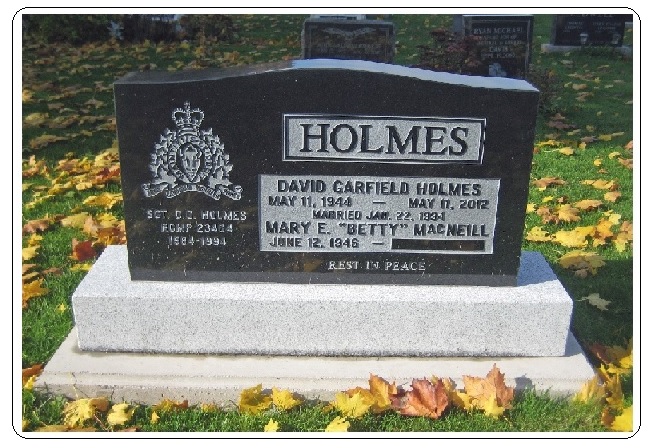
Catholic Cemetery. Parkdale, PEI.
RCMP Graves PEI
By Dave Holmes. Vets PEI.
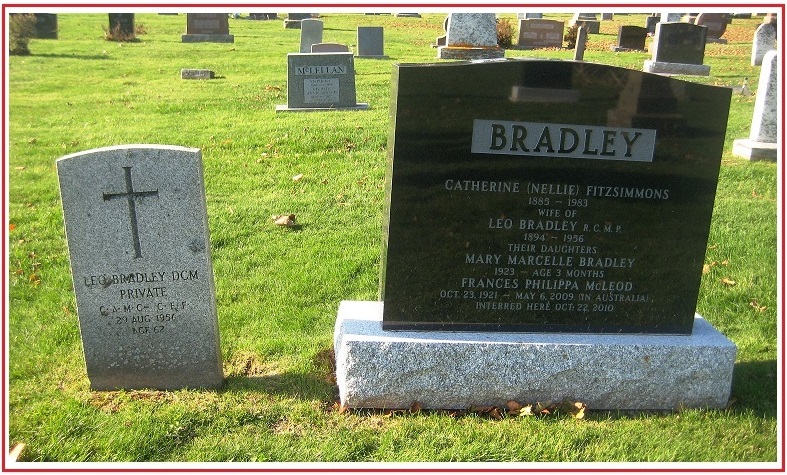
In 1997, 'L' Division RCMP approached the PEI Vets of the RCMP Veterans' Association to take over the RCMP grave inspections in the province and to bill 'L' Division for their time and mileage.
PEI Division Vets readily jumped at the chance to help reduce the work load of the RCMP detachments.
The first inspections were completed in the fall of 1997 with a report submitted to 'L' Division HQ outlining the list of graves inspected and which ones needed cleaning up or restoration work.
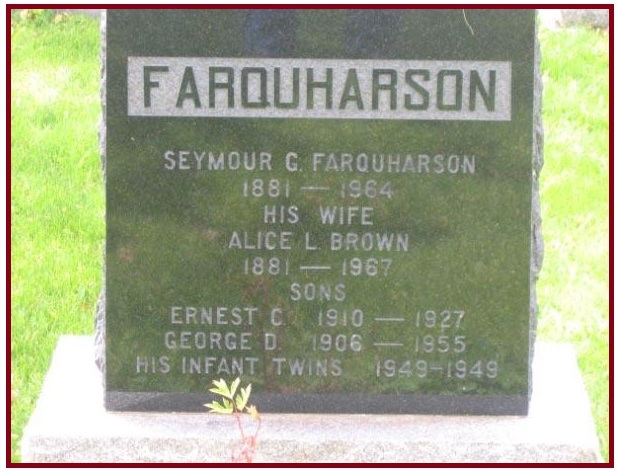
A photograph was taken of each grave, with a copy submitted with the annual report. Since that time, PEI Vets have continued with the annual inspections and kept an up to date list of grave sites of recently departed members.
In 2006, we updated our photograph record of the graves which is proof what work needs to be done to which graves. It should be noted that we found the grey regimental head stones were not fairing well as they became blackened with age and the lettering was fading.
The Vets cleaned up what headstones they could with vinegar and water but the problem with the lettering was referred on to a Headstone Company who does headstone repairs for Veterans Affairs. 'L' Division will be billed for the costs.
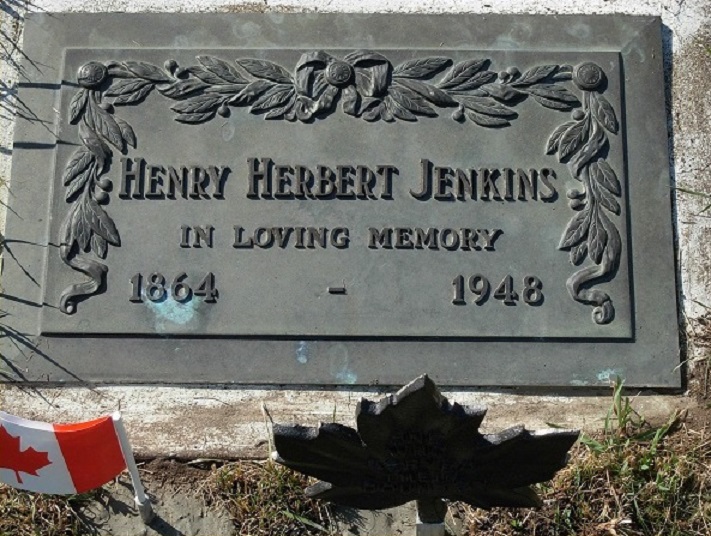
In 2000, Vet Jack White of Kamloops Div. reviewed our list of deceased and found 10 more members who died on PEI but no record of where they were buried.
Of late, we notice that more members are being cremated with the ashes being retained by widow or distributed on a river as was the case of Chester Gilliatt. Widows of Donald Smith and Joseph Martin are still in possession of their ashes.
PEI Division is committed to maintaining these inspections annually and to ensure they are properly cared for.
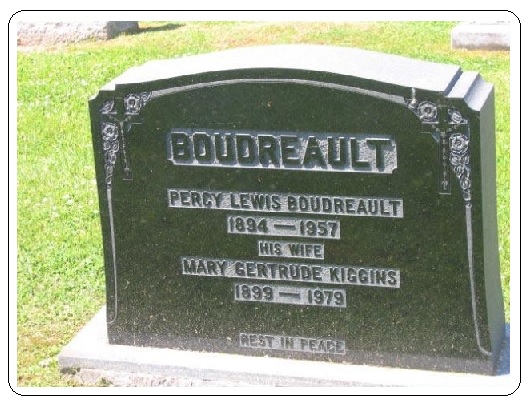
St. James Cemetery. Georgetown, PEI.
Reg.#3501 NWMP Constable James Henry Blackett
by Richard MacAulay
RCMP Vets PEI.
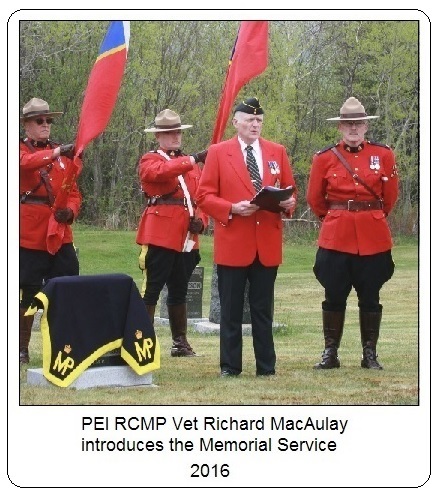
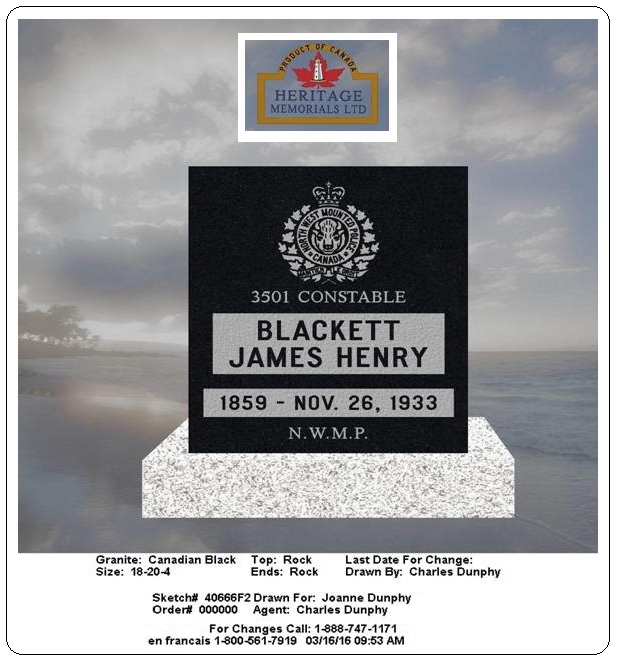
Introduction
James Henry Blackett, and originally from Souris PEI, engaged in the North West Mounted Police (NWMP) on March 20, 1900 at Charlottetown, PEI.
Archived documents showed that Constable Blackett served in the Force for one year and one day -- from March 20, 1900 to March 20, 1901.
On March 20, 1901 it was recommended that Constable Blackett be Medically Discharged from the NWMP due to his medical condition.
Upon his discharge from the NWMP, Constable Blackett said he intended to return to Souris East, PEI. While living in Souris, he got married and the Blackett couple had two sons and one daughter.
Search for Constable Blackett's grave
Approximately four years ago (2012) it came to the attention of PEI Vets that Cst. Blackett might possibly be buried in the Souris, PEI area. The search began for his gravesite. The local Funeral Director, Mr. Gary Dingwell, was contacted for research assistance. Gary could recall that his father had told him years ago that he had once buried a North West Mounted Policeman.
Mr. Dingwell suggested that Constable Blackett would likely have been buried in the Annadale area. I searched the graveyards from Annadale to East Point, PEI to no avail. Archive searches were conducted online, and the PEI Public Archives were checked but no solid leads resulted.
During an online obituary search of The Guardian Newspaper, it was discovered that Cst. Blacketts’ wife died on August 3, 1931 and she was later buried in St. Albans Anglican Cemetery, in Souris, PEI.
Then in consultation with Mr. Dingwell, it was discovered that Cst. Blackett was buried in St. Mary’s Catholic Cemetery, Souris, PEI on November 28, 1933.
Constable Blackett's death (on November 26, 1933) and his burial (on November 28, 1933) and his gravesite location were also confirmed by Fr. Jim Willick, Pastor of St. Mary’s Parish, Souris, PEI.
The grave location took some time to find due to the fact that Cst. Blackett did not have enough service to qualify for an RCMP grave marker and there was no private marker as well.
Since Constable Blackett did not have a grave marker, the RCMP Veterans Association, PEI Division purchased a grave marker.
Constable Blackett's Service Record, Medical Examination, Oath Of Allegiance, Engagement Document, Medical History Sheet, Medical Board Recommendation that he be invalidated, Discharge Form No. 84a and other related Forms/Information (38 documents) can be found online.
Constable Blackett's Memorial Service & photos
The RCMP Veterans Association, PEI Division held a Rededication Ceremony for Constable Blackett at his gravesite on Saturday, May 28, 2016 at 2:00PM.
The Ceremony was attended by RCMP “L” Division members, RCMP Veterans and the public. Cst. Blackett now has the appropriate recognition from his RCMP family.
The Memorial Ceremony was attended by an Eastern Graphic (a local PEI newspaper) reporter and her article of 1 June 2016 can be found on-line.
A collection of photographs which were taken at Constable Blackett's Memorial Service and provided courtesy of PEI Vet Richard macAulay are displayed below.
St. Mary’s Catholic Cemetery, Souris, PEI
Saturday, May 28, 2016
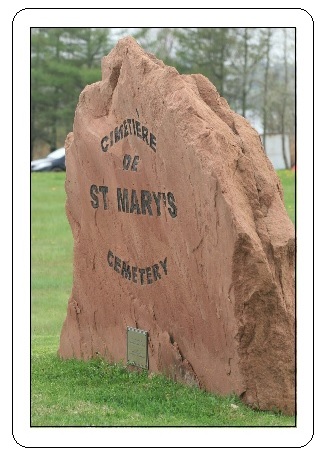
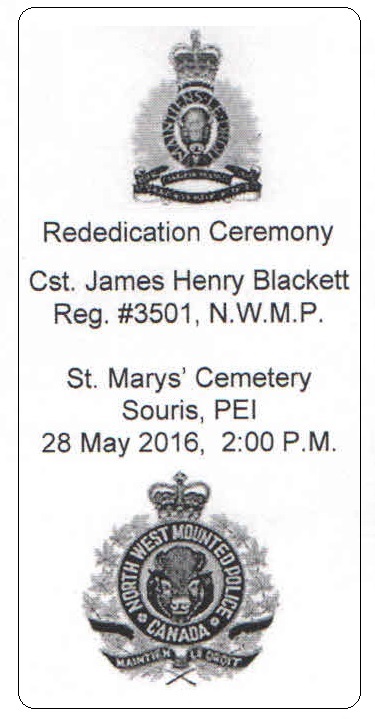
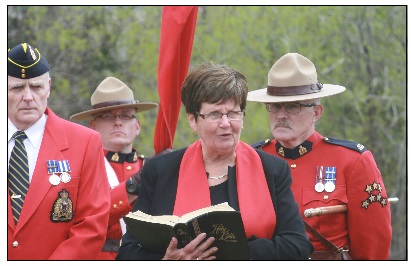
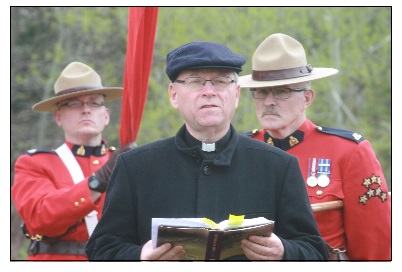
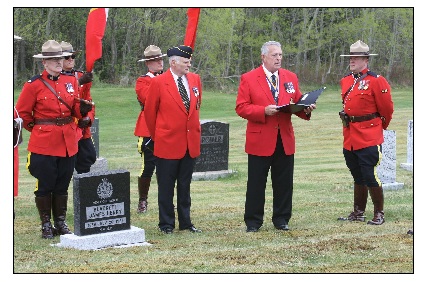

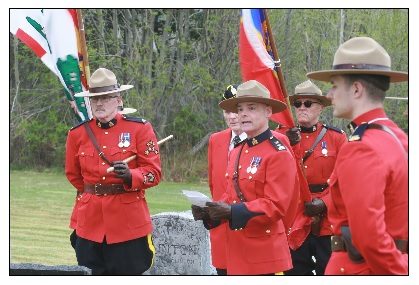
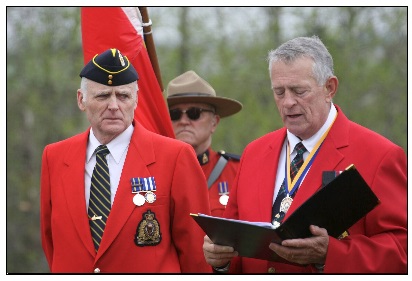
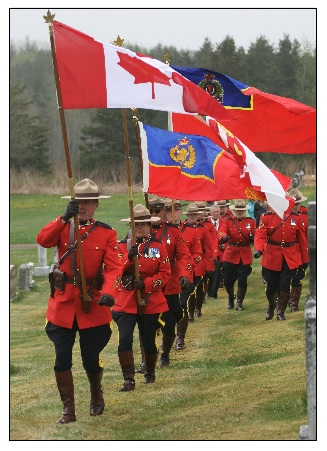
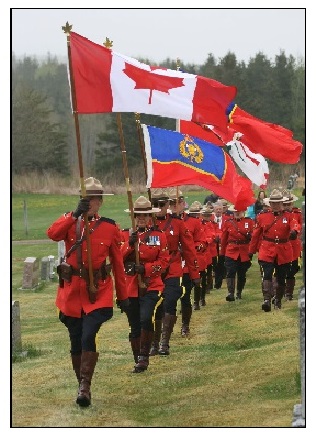
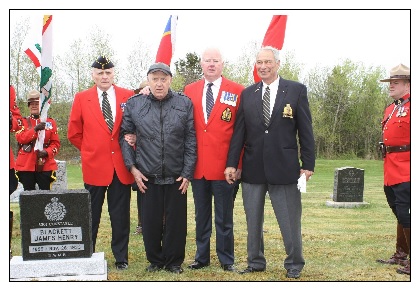
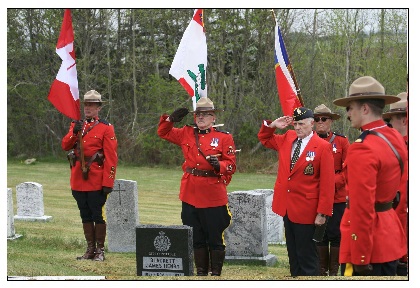
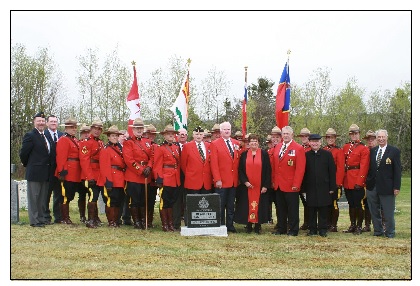
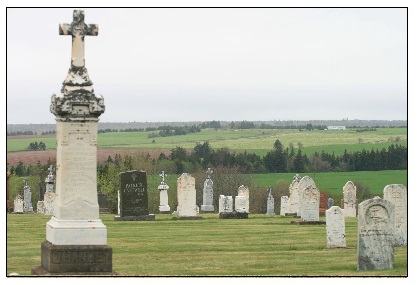
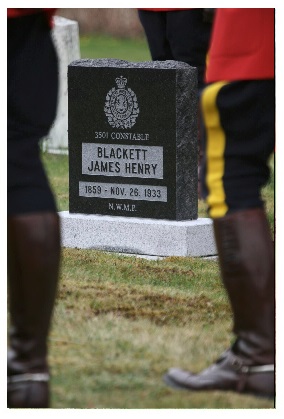

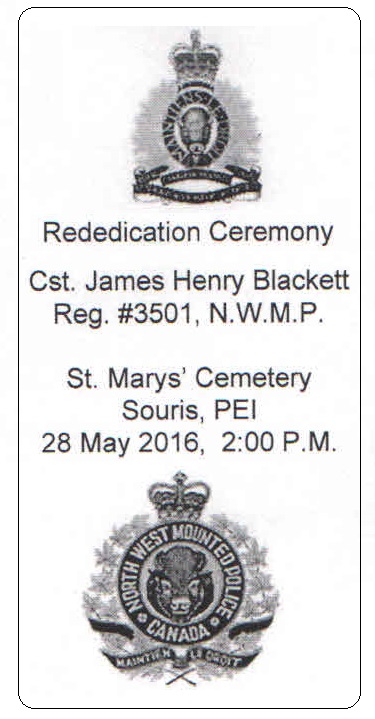
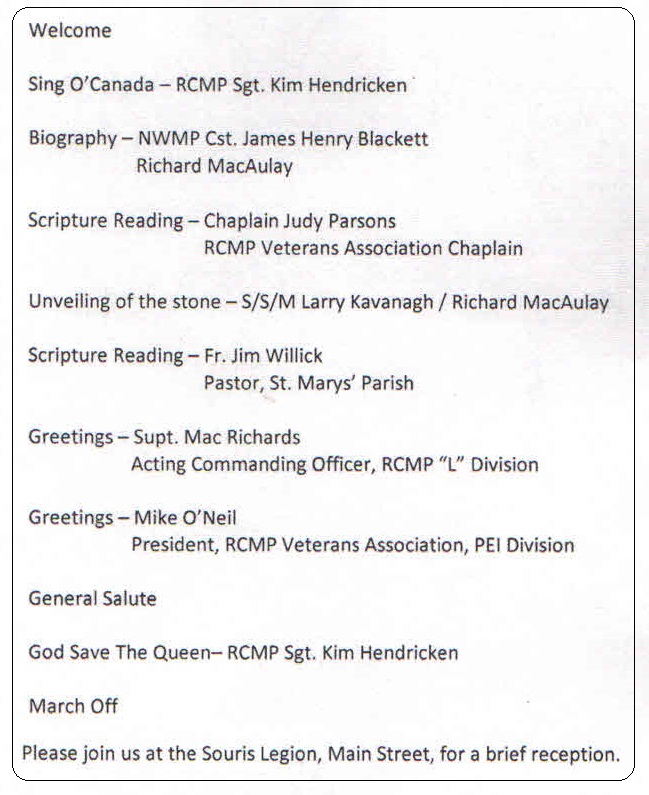
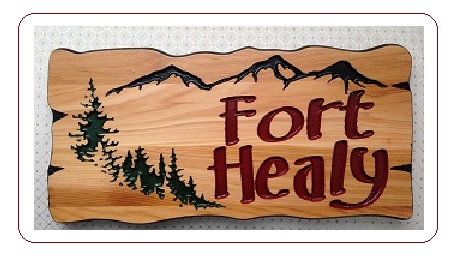


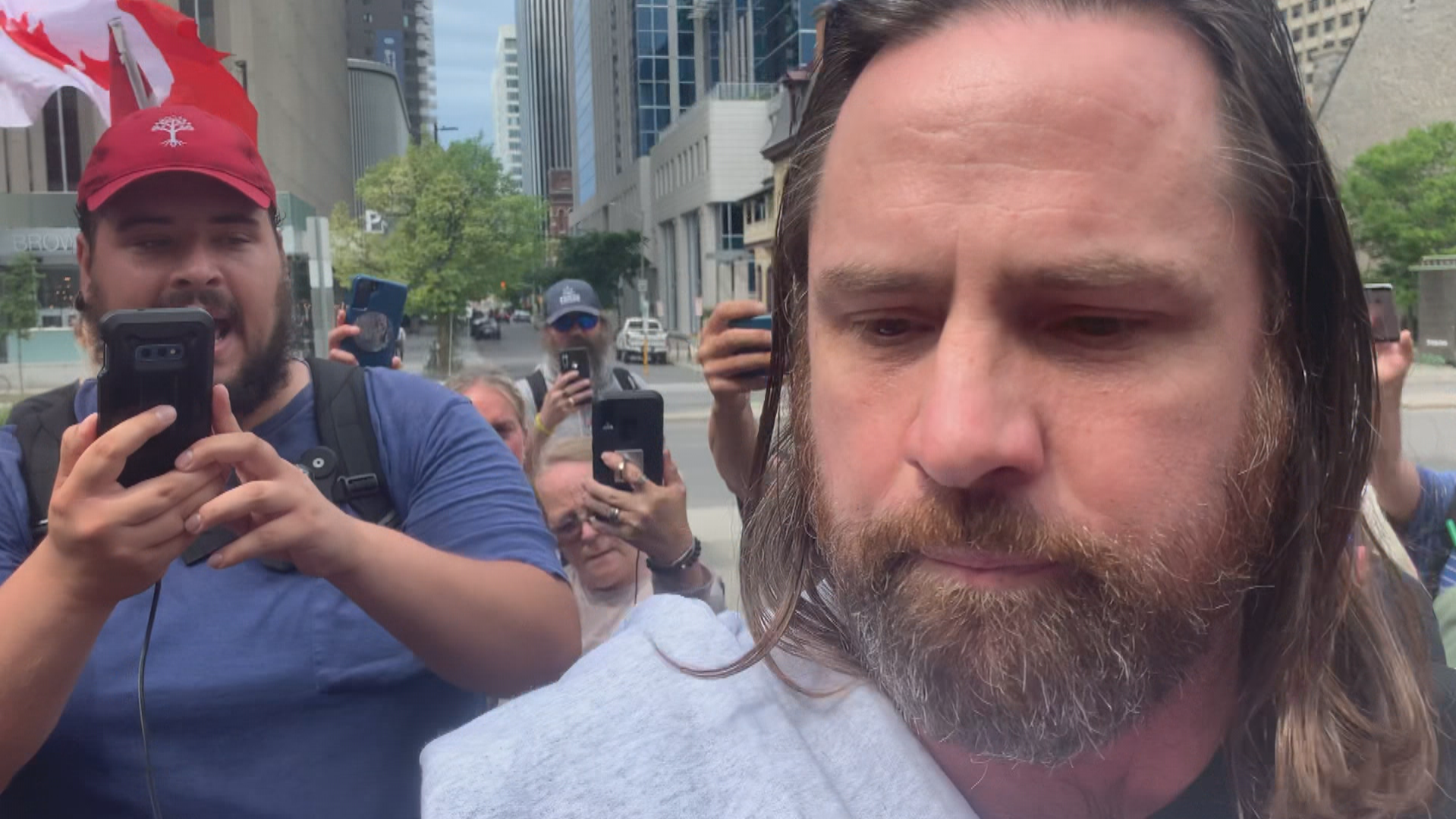











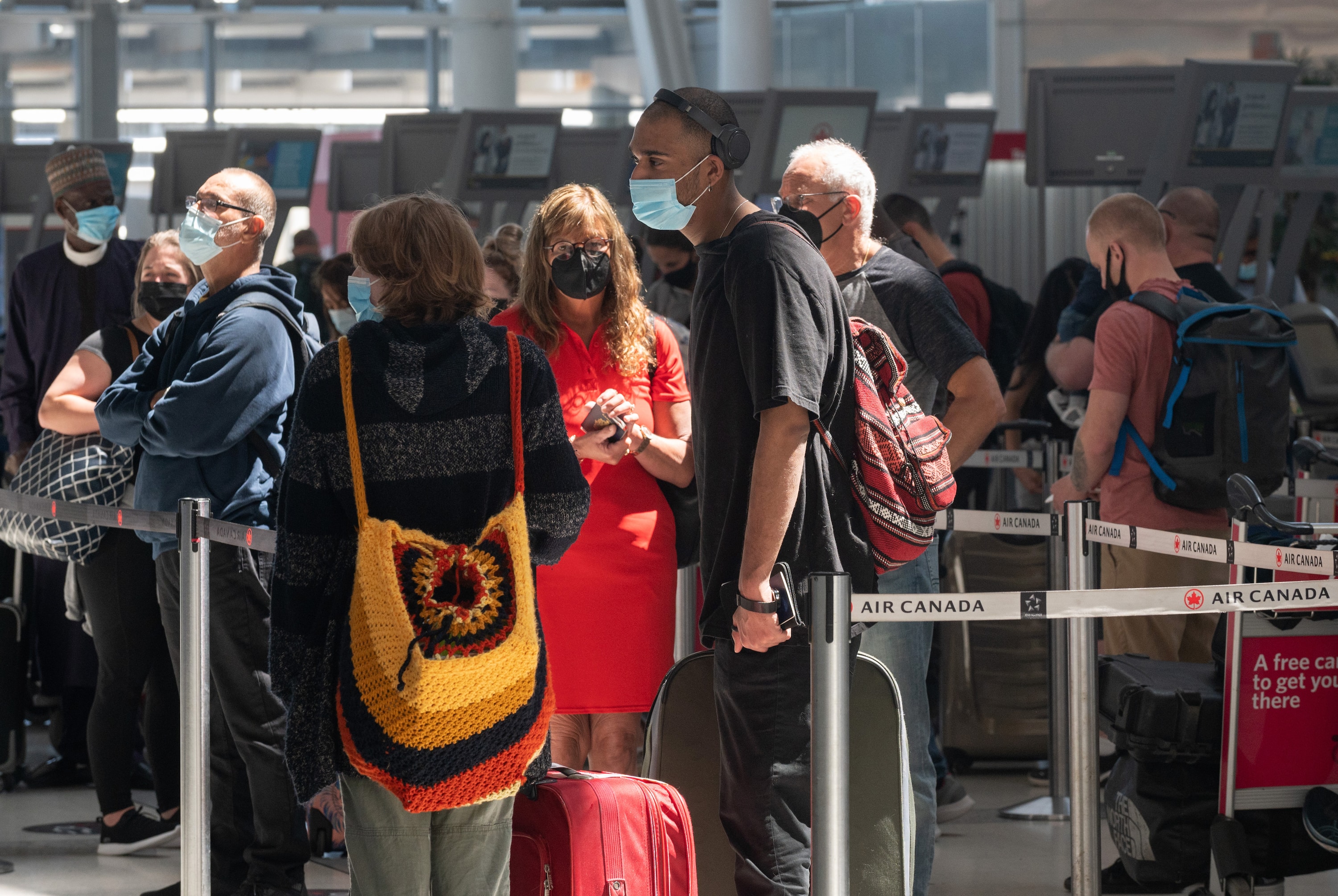






.jpg?crop=1.777xh:h;*,*&downsize=510px:*510w)








No comments:
Post a Comment